VETERINARIAN California
Pacific Veterinary Conference
Keynote Speaker, Renee Alsarraf, DVM, DACVIM (Oncology) page 18
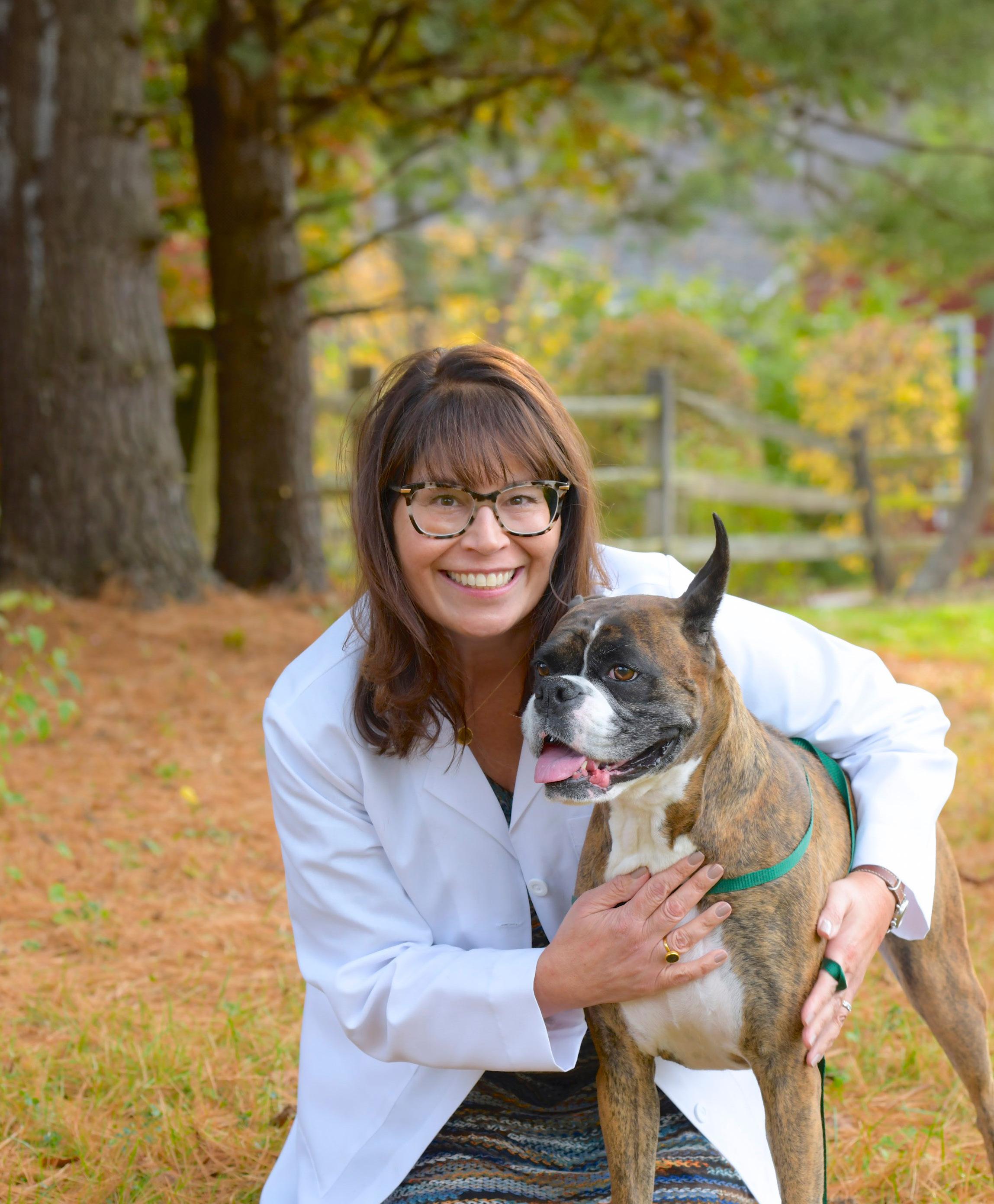
New CVMA
Member Benefit: Plumb's Pro™ page 9
VOLUME 78 NUMBER 02 | MARCH–APRIL 2024 THE PUBLICATION OF THE CALIFORNIA VETERINARY MEDICAL ASSOCIATION
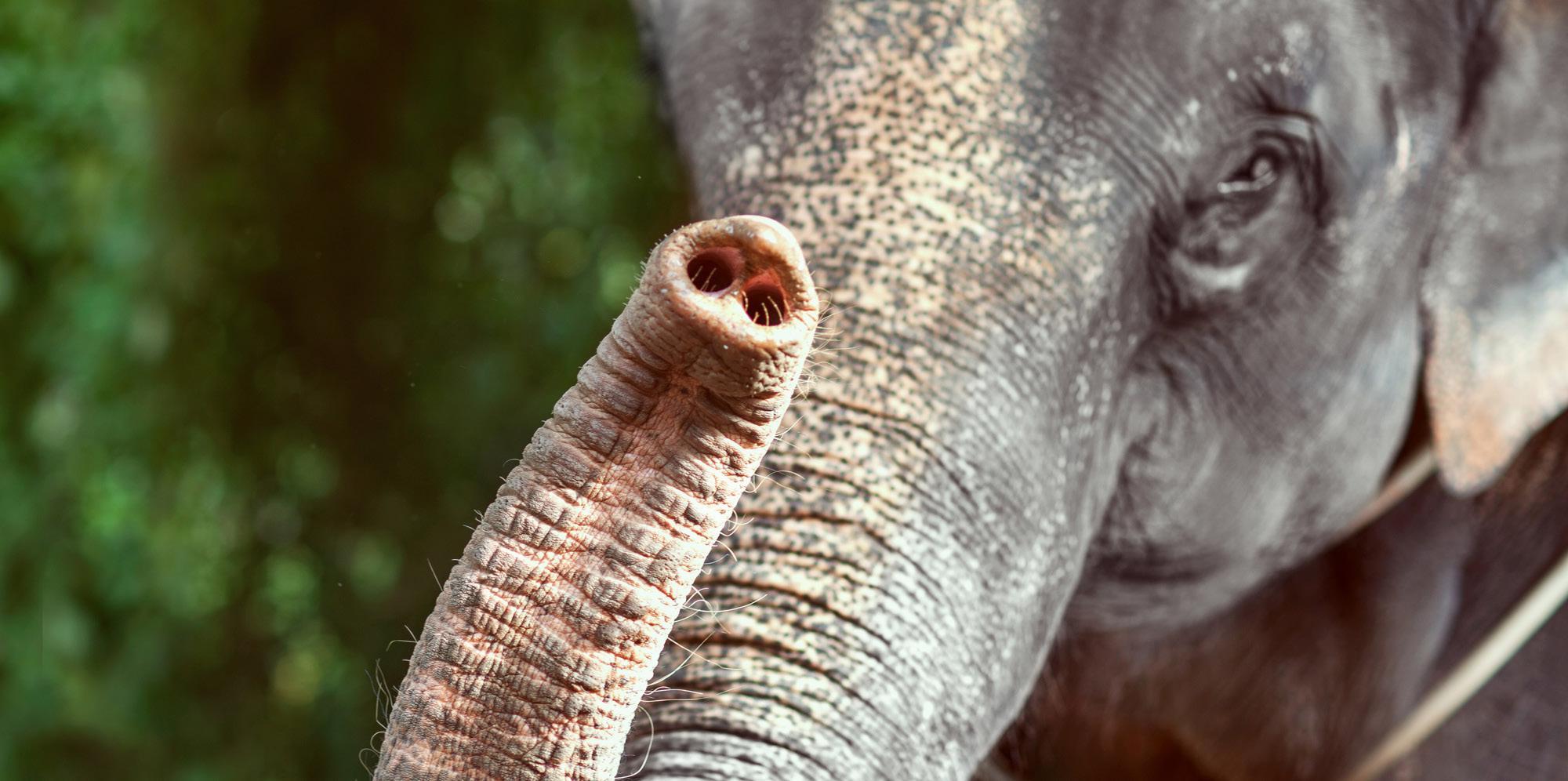
2 California Veterinarian | November–December 2023 We're not nosey. But we do know your business. visc-ins.com Call VISC at 888.762.3143 or email info@visc-ins.com for solutions to all your insurance needs. VISC is a wholly owned subsidiary of the California Veterinary Medical Association | CA Lic. #0F64180 Insurance for veterinarians...by veterinarians. Select coverages now offered in Arizona! Business Package | Veterinary Malpractice | VMB Defense | Employment Practices Liability (EPLI) Workers’ Compensation | Commercial Auto/Umbrella | Long-Term Care | Disability | Life

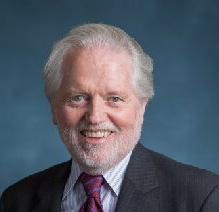
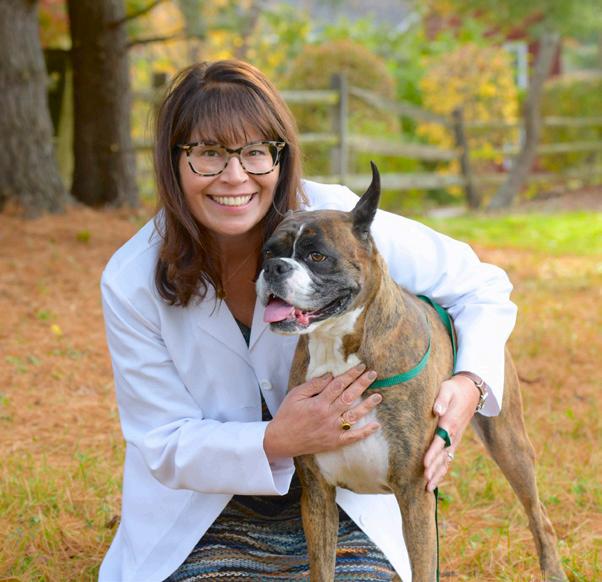

Features
New
New Laws for 2024
Thank You, PAC Contributors! CVMA
3 cvma.net/publications CONTENTS
Departments
Profile: Michael Manno,
Member
DVM, MS
CVMA Member Benefit: Plumb’s Pro™ CVMA Member Benefits
Tackles Artificial Intelligence, 2024 Legislation at Annual Veterinary Leadership Forum
Tribute: Dr. George Bishop 2024 PacVet Keynote: Treating Yourself Through a Dog’s Eyes CVMA Certified Veterinary Assistant Program TELUS Health: Overcoming Cultural Barriers to Seeking Mental Health Support Unique Insights: From a Euthanasia Veterinarian CDFA News: California’s 2024 Reportable Disease List Workplace Policies and Employee Handbooks CVMA Free Legal Services Workplace Safety: A Best Practices Guide to Preventing Employee Slips, Trips, and Falls in Your Veterinary Practice Something to Wag About CE Calendar Director’s Corner News & Now Compliance Corner: Client Drug Consultation Requirement for Veterinarians RVT News: Under Pressure CVMA Remembers Student News University News Classifieds Ad Index 7 4 9 5 10 6 12 14 8 16 18 15 26 28 30 27 35 31 43 41 36 45 46 37 38 39 16 12 18 20 Upcoming CE CVMA Pacific Veterinary Conference in San Francisco Online Seminars 20 34
In
Pathways to Payments: Leveraging Options to Help Clients Pay for Services
March 26, 2024 | 12:30 PM–1:45 PM (1.5 CEUs)
March 28, 2024 | 5:30–6:45 PM (1.5 CEUs)
For more information, see page 34.

Keeping Families Together: How to Support Domestic Violence Survivors and Their Pets
May 7, 2024 | 12:30 PM–1:45 PM (1.5 CEUs)
May 9, 2024 | 5:30–6:45 PM (1.5 CEUs)
For more information, see page 34.
CVMA Pacific Veterinary Conference in San Francisco
July 11–14, 2024 (28.5 CEUs)
For more information, see page 20.

CVMA Fall Seminar in San Diego
October 4–6, 2024
Registration opens soon. Watch your email for more information.

Registration for all CVMA events can be made online by logging onto cvma.net or by calling 800.655.2862.
CVMA-AFFILIATED PROGRAMS
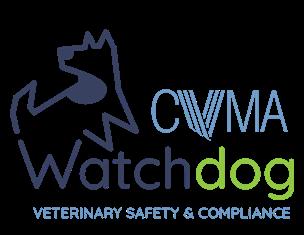
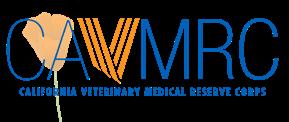
California Veterinarian (ISSN 00081612) is published bi-monthly by the California Veterinary Medical Association, e-mail: staff@cvma.net. California Veterinarian is an official publication of the California Veterinary Medical Association. Annual subscription rates to non-members: $50 U.S., $60 Canada/Mexico, $70 overseas. Price per single copy: $10 current year, $12 back issues. Periodicals postage paid at Sacramento, CA and at additional mailing offices. POSTMASTER: Send address changes to California Veterinarian, 1400 River Park Dr., Suite 100, Sacramento, CA 95815-4505. Phone: 800.655.2862
The CVMA and California Veterinarian assume no responsibility for material contained in articles and advertisements published, nor does publication necessarily constitute endorsement by them. ©2024 CVMA
Volume 78 Number 02 March–April 2024
The Publication of the California Veterinary Medical Association
Publisher Dan Baxter
Managing Editor Taryn DeOilers
Editor Kristen Calderon
Publication Designer Marissa Collier
Classified Advertising Laura Phillips
BOARD OF GOVERNORS
President Dr. Michael Karle
President-Elect Dr. Jennifer Hawkins
Member-at-Large Dr. Peter Bowie
Members
Dr. Kelly Byam
Dr. Patrick Connolly
Dr. Inez del Pino
Nicole Dickerson, RVT
Dr. Misty Hirschbein
Dr. Adam Lauppe
Dr. Peter Mangold
Dr. Diane McClure
Dr. Teresa Morishita
Dr. Shari O'Neill
Dr. Kevin Terra
Dr. Brent Wooden
Dr. Jodi Woods
Treasurer Dr. Ron Kelpe
Chair, House of Delegates Dr. Laura Weatherford
STUDENT REPRESENTATIVES
University of California, Davis Sarah Meil
Western University Nicole Lent
CVMA STAFF
Executive Director Dan Baxter
Director of Finance Kathy Van Booven
Director of Member Services Kristen Calderon
Director of Communications Taryn DeOilers
Director of Conferences and Events Sarah Erck, CMP
Director of Regulatory Affairs Grant Miller, DVM
Membership and Student Services Manager Laura Phillips
Communications and CE Coordinator Nicole Campos
Finance Coordinator Sharmele Browne
Graphic Designer Marissa Collier
Conference Speaker Coordinator Lily Briggs
Conference Expo Coordinator Erica Ferrier
Membership Coordinator Jennifer Smith
Receptionist Mary Young
DISPLAY ADVERTISING
Please contact Erica Ferrier at 916.649.0599 ext. 15 or email eferrier@cvma.net.
4 California Veterinarian | March–April 2024 UPCOMING CE
Tell us what you think! Want to comment on what the CVMA is doing or writing about? Send an email to comments@cvma.net or call 800.655.2862. Your thoughts and opinions matter to us. The
is
hear your voice!
CVMA
YOUR association—let us

As we say in our regularly featured “I Am the CVMA” article in this publication, our members are the heart of the CVMA. In January, longtime CVMA and American Veterinary Medical Association (AVMA) leader Dr. George Bishop passed away, leaving a hole in that heart. George was a pillar in the veterinary association community, having served in just about every imaginable position on the local, state, and national levels. He was a tireless advocate for the veterinary profession, and it is no stretch to say that likely everyone reading this was impacted by George’s work to safeguard the legal and professional rights and privileges currently enjoyed by those within the veterinary community.
As a brief synopsis, George was highly active in organized veterinary medicine at the local, state, and national levels for well over 40 years, including as president of the Monterey Bay Area Veterinary Medical Association, board member and president of the CVMA, 18-year California representative to the AVMA’s House of Delegates, and the District 10 member of the AVMA’s Board of Directors, representing California, Nevada, and Hawaii. George also served as the CVMA’s treasurer from 1999 to 2023, helping safeguard the economic wellness of the CVMA and its members. He was additionally one of the founding board members of Veterinary Insurance Services Company (VISC) and served as the longtime treasurer of VISC, as well. George is one of a very small number of individuals to be honored with the CVMA’s Lifetime Achievement Award, among many other recognitions from a multitude of veterinary organizations.
Away from organized veterinary medicine, George was a much-beloved small animal clinician, a graduate of the Ohio State University College of Veterinary Medicine, and the founder and longtime owner of The Animal Hospital at the Crossroads in Carmel, which he opened in 1969. He was an active, practicing veterinarian right up until the end, and he will be remembered fondly by the clients he faithfully served over a career that spanned half a century.
I was first introduced to George some years ago (probably around 2005 or so) when I was working as the CVMA’s outside legal counsel. Every once in a blue moon, I would be called upon in that capacity to join a CVMA board meeting or other gathering, and it was in that setting that I met George. I don’t remember the exact circumstances of our meeting, but I do remember dining with him around that same time and immediately noting his fondness for high-quality wine— in particular, a good bottle of Silver Oak Cabernet Sauvignon. On just about every subsequent occasion when we shared a dinner, that steadfast bottle of Silver Oak was close at hand.
When I joined the CVMA in earnest, I was fortunate enough to work directly with George in his role as CVMA/VISC treasurer, as well as in the context of several CVMA committees. Since I joined the CVMA during the depths of COVID, many of those meetings were held remotely, and George—as CVMA President Mike Karle mentioned in a poignant tribute at the CVMA’s recent Veterinary Leadership Forum—became semi-famous for always appearing from a small bunkerlike room in his practice, attired in his ubiquitous black suit, white shirt, and black tie. Every once in a while, a lab coat would be included in that sartorial ensemble, but you could otherwise set your watch by George’s Zoom background and outfit…both were as solid and steadily predictable as he was as a leader and person. I will miss him.
To learn more about George and his tremendous leadership and to read heartfelt testimonials from friends and acquaintances, please see our article in the September/October 2023 edition of California Veterinarian (pages 12-14), which we put together to honor George’s 24 years of service as the CVMA and VISC treasurer. We also pay additional tribute to George in this issue on pages 16-17.
Farewell, George…
 Dan Baxter Executive Director
Dan Baxter Executive Director
5 cvma.net/publications
DIRECTOR'S CORNER
UPCOMING MEETINGS
MARCH 23, 2024
CVMA Board of Governors Meeting
APRIL 17–18, 2024
Veterinary Medical Board Meeting
JUNE 5, 2024
Veterinary Insurance Services Company Board Meeting

News Now & CVMA
JULY 14, 2024
Joint CVMA Board of Governors/House of Delegates Meeting in San Francisco
JULY 22–25, 2024
Veterinary Medical Board Meeting
Deadline for Student Scholarship Applications Is April 15
The deadline to submit applications for the California Veterinary Medical Foundation/ Veterinary Insurance Services Company (CVMF/VISC) and the CVMF Ron Faoro, DVM, Student Scholarship Awards is April 15. UC Davis and WesternU veterinary students who are in good standing are eligible for the awards and are encouraged to apply! For more information and to apply, visit cvmf.net. Completed application forms should be emailed to staff@cvmf.net.
Attention, All CVMA Member Relief Veterinarians!
The CVMA offers the Relief Veterinarian Directory as a member benefit to help connect veterinarians looking for relief help with locum tenens veterinarians. If you are a CVMA member and a relief veterinarian, we want to include your information in our updated database. To join the directory, please contact Jennifer Smith at jsmith@cvma.net or call 800.655.2862.
Early-Career Veterinarians: Write About Your Experience for the Magazine!
California Veterinarian is looking for veterinary professionals who are embarking on their careers to pen a short article (500-600 words) about their experience so far in practice. Contributors must practice in California and be a CVMA member. Your work will be compensated. Interested writers can email Taryn DeOilers, the CVMA’s Director of Communications, at tdeoilers@cvma.net for more information.
6 California Veterinarian | March–April 2024 NEWS & NOW
= HYBRID OR VIRTUAL EVENT
I AM THE
Michael Manno, DVM, MS
c Senior Partner, San Dieguito Equine Group in San Marcos, CA
c Purdue University
c Equine Medicine and Surgery (Emphasis on Racehorses, Polo Horses, and Sport Horses)
My life philosophy is get up early and try to do the best you can every day, knowing that you will fall short many times.
I like to de-stress by heading up to the Eastern Sierras. They are magical with endless and changing beauty.
The best decision I ever made was marrying my wife (is there another answer?).
My role model was and still is my mother. She was a teacher—my teacher twice in grade school! I followed in her footsteps and taught at Purdue University. She was the consummate overachiever who had a job and raised a family of four children before working mothers were commonplace, and she put herself through college and got a Masters all at the same time.
What are your words of wisdom for new veterinary professionals? Bluntly, they must understand the physical and emotional pressures they will face in this profession. Do all you can to find your niche and seek the best work-life balance you can achieve.
Members are the heart of the CVMA
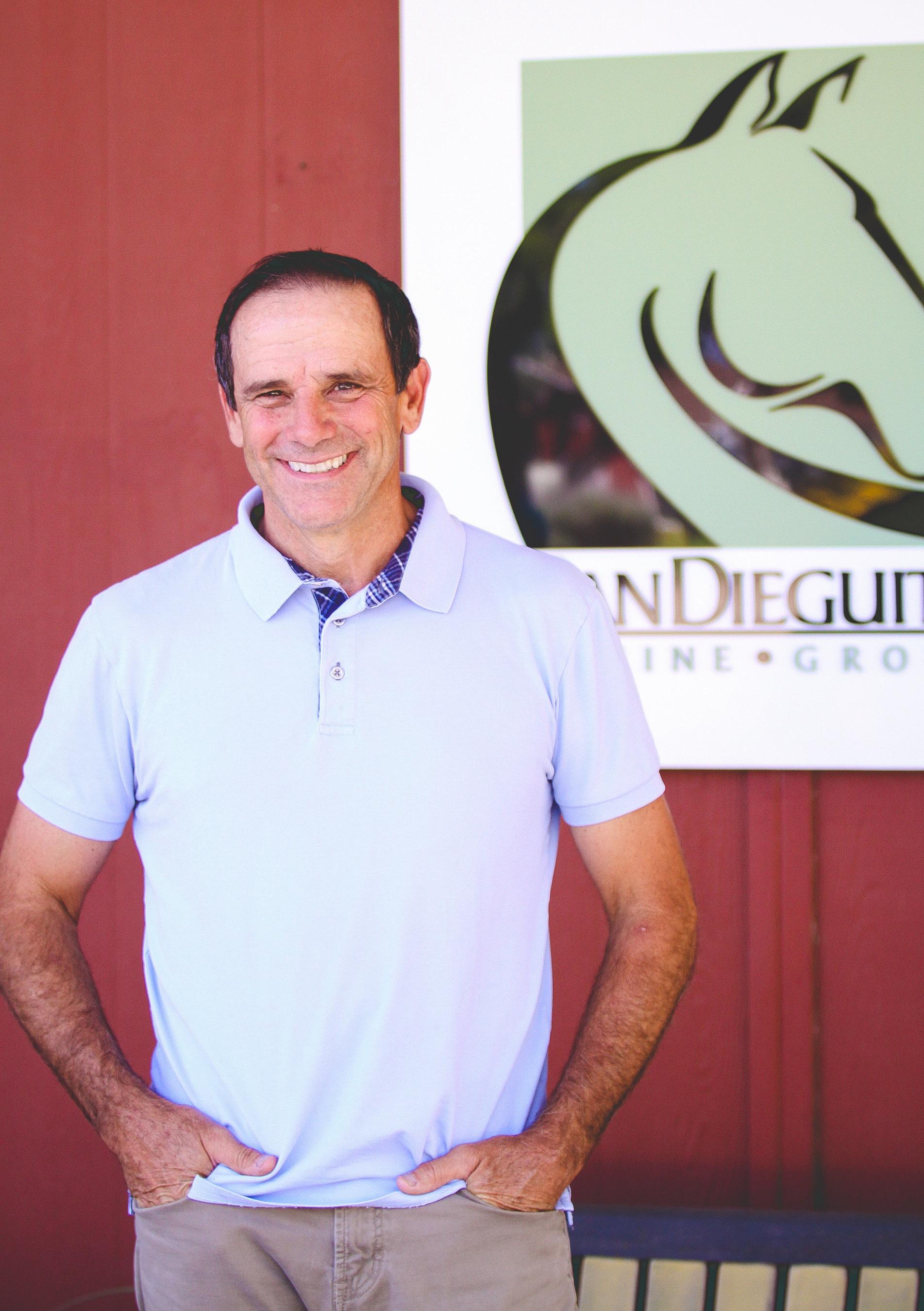
I am a CVMA member because I believe that there is power in collective action—whether it is just literally paying your dues or lending your time and thoughts. I also feel that we as veterinarians need to give something back to the profession, and while we can’t always find the time to do so, industry leaders such as those who make up the CVMA can help do that for us if we support them and make our feelings known.
7 cvma.net/publications MEMBER PROFILE
Client Drug Consultation Requirement for Veterinarians
By Grant Miller, DVM, CVMA Director of Regulatory Affairs
California Business and Professions Code section 4829.5 requires that each time a veterinarian initially prescribes or dispenses a prescription medication in an outpatient setting, they must offer to provide a drug consultation to the client or the client’s agent.
The law specifies that:
• The veterinarian is required to offer consultation the first time they prescribe or dispense medication to a client or client’s agent in an outpatient setting.
• This only applies to written prescriptions or to prescription drugs dispensed from practice stock for clients to take home. Medication refills or drugs being dispensed on a repeat basis do not require subsequent consultations.
• The consultation does not apply to drugs administered to animal patients.
• Non-prescription products do not require consultation.
• The consultation may be conducted either in person or through electronic means.
The consultation must include at a minimum the following information:
1. The name and description of the prescription (also referred to as “dangerous”) drug. The description must include the type of drug and what it is used to treat. For instance: “Carprofen is a non-steroidal antiinflammatory drug that is being used to treat musculoskeletal inflammation.”
2. Route of administration, dosage form, dosage, duration of drug therapy, the duration of the effects of the drug, and the common severe adverse effects associated with the use of a short-acting or long-acting drug. Continuing with the carprofen example: “The medication consists of a 75 mg tablet that is given
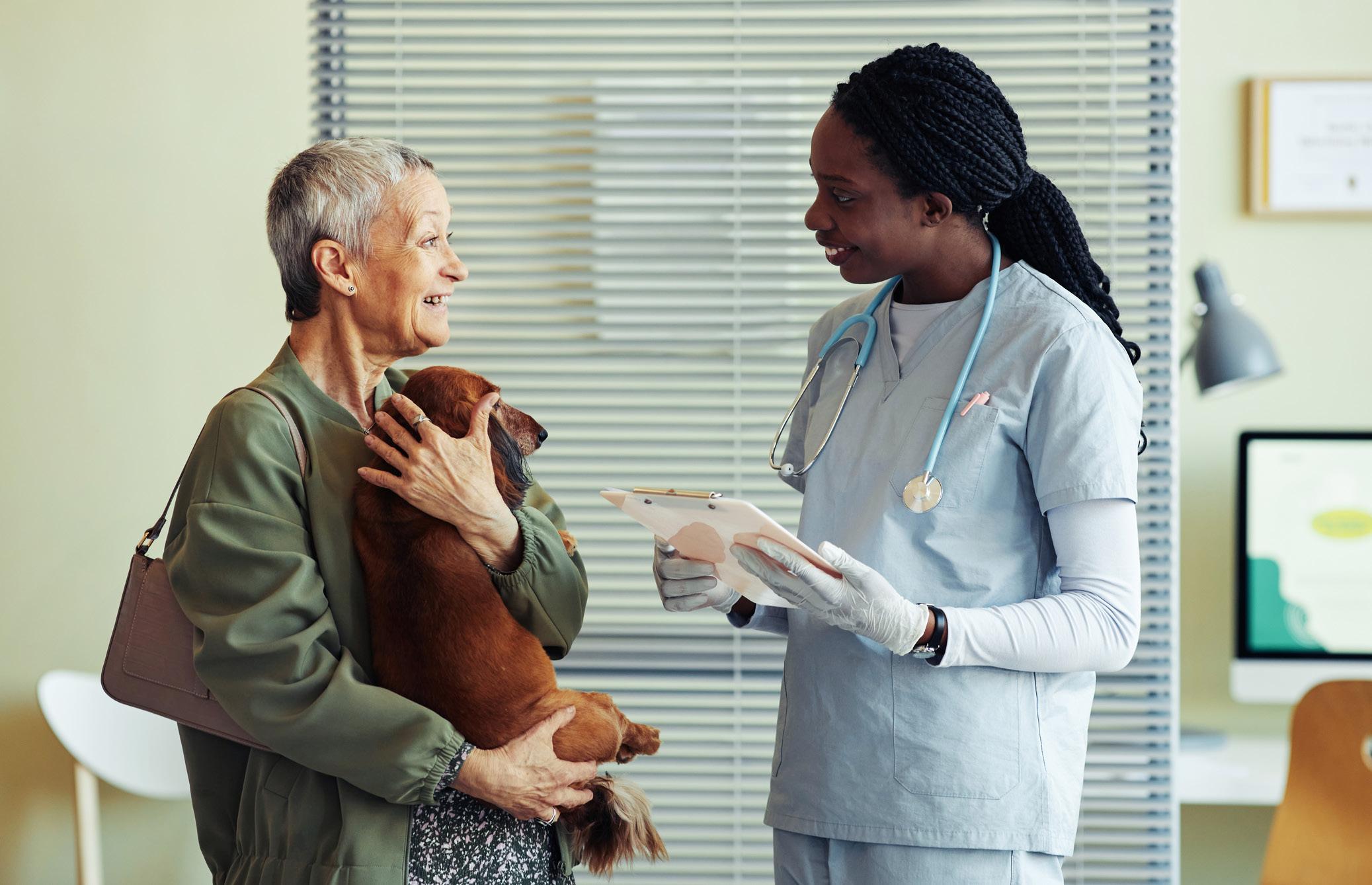
orally twice daily for 10 days. The drug has about a 12-hour duration of effect when treating musculoskeletal inflammation.” Only common, severe, adverse effects need to be mentioned.
3. Any special directions for proper use and storage. Examples include if the drug requires reconstitution prior to use or if it should be stored in darkness or in a refrigerator.
4. Actions to be taken in the event of a missed dose. Because no information on this topic exists on product labels or in literature, it is up to each veterinarian providing the consultation to determine how to advise a client on what to do if an animal patient misses a dose.
5. If available, precautions and relevant warnings provided by the drug’s manufacturer, including common severe adverse effects of the drug.
If the client requests written documentation about the drug, the veterinarian must provide it, if available. Sources could include drug information provided by the manufacturer, information found in a veterinary drug compendium, or
information compiled by the veterinarian. If written information is unavailable, then a veterinarian is not required to provide written documentation.
A veterinarian may delegate to a registered veterinary technician or veterinary assistant the task of providing the required consultation and, if applicable, drug documentation.
The law also requires the patient medical record to state whether the consultation is provided or declined by the client or client agent. As a safeguard, it is recommended that the name of the client or client’s agent be included in the record as part of the entry describing the drug consultation offer. The name or initials of the person responsible for documenting the consultation in the record should also be included in the entry.
This article is for informational and general educational purposes only. It is not intended to take the place of legal advice nor should it be considered as a legal interpretation. Although significant effort has been made to ensure the accuracy and completeness of the information at the time of publication, the CVMA shall not be responsible for any errors or omissions, or any agency’s interpretation, application, or enforcement of the information presented herein.
8 California Veterinarian | March–April 2024 COMPLIANCE CORNER
CVMA members can now save $300 on a subscription to Plumb’s Pro, a new clinical reference tool for veterinarians, making it easier (and less time-consuming) to see and treat patients!
What is Plumb’s Pro?
Plumb’s Pro is a clinical decision support tool similar to what our colleagues in human healthcare have been using for years.
From one easy-to-navigate platform (and on any device), you can work up cases, confirm drug doses, check drug
interactions, and provide pet owners with all the information they need.
You’ll have more time, focus, and confidence when you can quickly:
• Find key clinical insights with practical, peer-reviewed monographs on hundreds of clinical conditions and signs
• Create diagnostic and treatment plans with step-by-step case support
• Share important information with pet owners on their pet’s medications, diagnoses, procedures, and more
• Access continually updated drug details and an easy-to-use conversion calculator for faster, safer prescribing
• Double-check treatment choices with the first-of-its-kind veterinary drug interaction checker
Want a closer look at Plumb’s Pro? Scan the QR code for an on-demand demo.

Already subscribe to Plumb’s Veterinary Drugs®? Just enter the email address you used to subscribe when registering to ensure your notes and favorites transfer and you will receive a prorated refund for your existing account term.







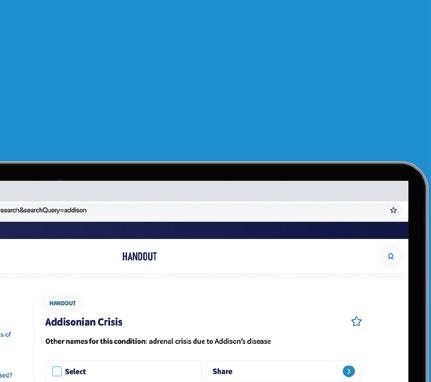





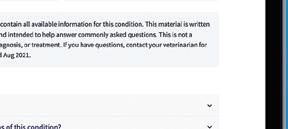
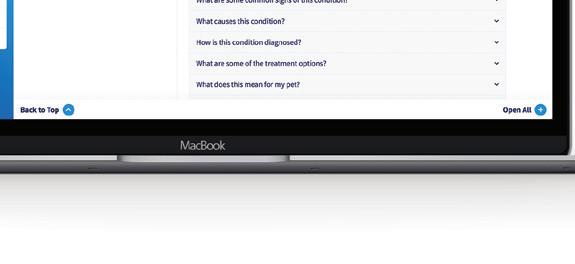


9 cvma.net/publications NEW MEMBER BENEFIT
As a member of the California Veterinary Medical Association, you're eligible for a discounted subscription to Plumb's Pro™. Learn how you can manage diagnosis, treatment, and client education from one easy-to-use app and website for $665/year (a savings of nearly $285). TRUSTED CLINICAL DECISION SUPPORT FROM DIAGNOSIS TO DISCHARGE Subscribe at plumbs.com/group/california-vma
Pro™
Plumb’s
INTRODUCING NEW CVMA MEMBER BENEFIT:


10 California Veterinarian | March–April 2024 Who’s Looking Out for You? The CVMA is the only organization advocating on your behalf on the state level! 2024 will see proposed legislation that has potential to significantly impact the veterinary profession. In order to effectively advocate for the profession, we need a strong unified voice, which means we need a strong member base. Don’t leave it up to your colleagues to carry the load. Membership in the CVMA is an investment in your career. If you are already a member, thank you for your continued support! Become a new member starting on April 1 and get three free months of membership! Now is the time to say “I am a CVMA member” rather than “I should be a member!” Join online at cvma.net or call 800.655.2862.
CVMA Member Benefits
Continuing Education
High-quality CE offered in person and online at special member rates
– cvma.net/continuing-education/
Continuing education record maintenance on the CVMA website with licensure renewal reminders
– cvma.net/continuing-education/
CVMA’s Certified Veterinary Assistant Program – cvma.net/resources/
Business
Free legal and regulatory consultation for member veterinarians
CVMA Watchdog program to assist with workplace safety, legal issues, and laws and regulations – cvma-watchdog.net
Relief Veterinarian Directory
Find-a-Veterinarian online listing
Advocacy
CVMA legislative advocacy – cvma.net/advocacy/
Continual monitoring and reporting of unlicensed veterinary activity
Information
Immediate critical access to information through California Veterinarian magazine, CVMA’s Connect e-newsletter, the CVMA website, press releases, and action alerts
The CVMA Member App puts the power of the CVMA in the palm of your hand
Wellness
TELUS Health (formerly LifeWorks) is the CVMA’s full-service member assistance program
LetsGetChecked provides discounts on over 30 home health tests
Active&Fit gives discounts to over 11,600 national fitness centers
Insurance Coverage
Veterinary Insurance Services Company (VISC) insurance specialized for the needs of veterinary professionals
– visc-ins.com
Delta Dental Insurance
Vision Service Plan
Career
The CVMA Career Center post and view classified employment and practice sales ads
CVMA members-only online directory
MentorVet discounted fee for peer support coaching for new veterinary graduates
Student
Summer Work Experience Program (SWEP) connecting veterinary students with veterinary practices for summer employment – cvma.net/resources/
VISC UC Davis and WesternU veterinary student members receive complimentary professional liability insurance
Savings on Products and Services
CareCredit healthcare financing
The Castle Press discounts on printing services and products
RECENTLY ADDED! Clean Harbors discounts on medical waste services packages
Epicur Pharma discounts on its 503B product line for in-house use and administration as well as secondary dispensation to clients
GlobalVetLink discounts on electronic prescriptions, health certificates, feed directives, and other products
HireRight discounted employee background screening
i3 Merchant Solutions lowering credit card processing rates
National Pharmaceutical Returns discounts on mail back disposal services for unwanted prescription and over-thecounter drugs, and reverse distribution of unwanted controlled substances
RECENTLY ADDED! PetFundr provides pet owners access to create crowdfunding campaigns which sends funds directly to your account for their pet's care
RECENTLY ADDED! The OnHold Experience discount on professionally produced "on hold" message campaigns
RECENTLY ADDED! The ULTI Travel Bag by CONMIGO receive 15% off the ULTI travel bag by CONMIGO, fusing organization, luxury, and ergonomic design for the ultimate travel convenience
JUST ADDED! Plumbs Pro™ see page 9 for full description
Entertainment
California Academy of Sciences discounted admittance
Car Rental Savings
TicketsAtWork discounts for theme parks and more
For more information on CVMA member benefits, visit cvma.net/membership/.
11 cvma.net/publications CVMA MEMBER BENEFITS
2024 California Legislative Session Includes Several Bills
Impacting the Veterinary Profession

Following the 2024 bill introduction deadline of February 16, the California Legislature’s count for new bills this year is 2,124. That includes 1,505 in the Assembly and 619 in the Senate. A significant number of bills were introduced as “spot” bills—or placeholder measures—which means that the details of their intent have yet to be announced. Therefore, in addition to the bills specifically discussed below, further proposed legislation impacting the veterinary profession may still emerge.
CVMA’s lobbyist Christina DiCaro has reviewed every 2024 bill to determine which should move forward to the CVMA legislative team for consideration. That team, which includes CVMA lobbyists, key staff, the Executive Committee, and Legislative Committee co-chairs Dr. Dayna Wiedenkeller and
Dr. Brent Wooden, closely monitors all bills and represents the CVMA in meetings with legislative staff and bill sponsors. On February 26, the legislative team discussed 30 such bills to assess their impact on veterinary medicine, animal health and welfare, and employer/employee relations. Ultimately, the legislative team referred nearly all of those bills for review by the CVMA Legislative Committee, which in turn will discuss each bill at their March 15 meeting and recommend positions to the CVMA Board of Governors. The Board will then vote on official CVMA positions at its March 23 meeting.
Among the bills being monitored by the CVMA this session, the following are of particular importance:
12 California Veterinarian | March–April 2024 NEW LAWS FOR 2024
SB 1233 (Wilk) University of California: veterinary medicine: spay and neuter techniques.
CVMA-Sponsored Bill
California animal shelters report that they are unable to find veterinarians willing to spay and neuter animals in a High Quality, High Volume Spay/Neuter (HQHVSN) environment and that numerous open advertised positions have gone unfilled for extended periods of time. As a result, those shelters indicate that pet overpopulation is a greater concern than normal. Furthermore, as discussions about Access to Veterinary Care become more prevalent, veterinarians and registered veterinary technicians (RVTs) play a pivotal role in contributing to solutions. Many pet owners seek low cost spay/neuter options for their animals, which places greater demand—and greater stress—on shelters and non-profit entities that offer this procedure.
To address these issues, the CVMA is sponsoring SB 1233 (Wilk) to create elective curriculum and HQHVSN certification programs at California’s two veterinary schools, UC Davis and WesternU. The bill language is under development but will intend to provide HQHVSN certification courses for both qualified California veterinary students and veterinarians and RVTs already in practice, all of whom will learn their respective roles, tasks, and techniques in a HQHVSN environment.
AB 2133 (Kalra) Veterinary medicine: registered veterinary technicians.
CVMA Position: Oppose
This bill seeks to permit registered veterinary technicians (RVTs) to neuter cats. The CVMA has taken an early opposition position to this measure, as did has the American Veterinary Medical Association. While the CVMA appreciates the valuable service that the RVTs contribute to the veterinary profession, there is significant concern that the RVT licensing curriculum does not include subject material that qualifies them to perform surgery.
AB 3029 (Bains) Controlled substances.
SB 1502 (Ashby) Controlled substances: xylazine.
Both of these measures intend to add xylazine to the State of California controlled substance list in order to help reduce the illicit use of xylazine among the human population. The addition of xylazine to the state list can potentially impact the practice of veterinary medicine, particularly among equine and livestock veterinarians. The CVMA will work with both authors to represent the needs of the veterinary profession on this important issue.
SB 1459 (Nguyen) Animal shelters: veterinarians.
SB 1478 (Nguyen) Veterinary medicine.
While both of these bills are currently introduced in “spot” bill form, an early conversation with the author suggests that the senator wishes to address standards of veterinary care in shelters. The CVMA will be reaching out to the author to learn more details about her intent in these legislative measures.
2024 Legislative Calendar
January 3
January 10
February 16
May 24
June 15
July 3
August 23
September 31
October 30
Legislature reconvenes
Deadline for governor to submit budget
Last day for bills to be introduced
Last day for bills to pass out of house of origin
Budget bill must be passed by midnight
Last day for policy committees to meet and hear bills
Last day to amend bills on the Floor (general session)
Last day for each house to pass bills
Last day for governor to sign or veto legislation
CVMA Legislative Action Center
For specific information on bills or to track CVMA-monitored bills through the legislative process, visit the CVMA’s online Legislative Action Center in the Advocacy section of cvma.net.
13 cvma.net/publications
Thank You, CVMA PAC Contributors!
The CVMA greatly appreciates all of its members who have contributed and supported the CVMA Political Action Committee (CVMA PAC). Thanks to your generous funding, the CVMA is able to maintain its mission of being the most prominent voice on all issues related to the veterinary profession and the welfare of animals in California.
2024 is expected to be an unprecedented legislative year for veterinary medicine in California. Please consider giving to the PAC to help safeguard your profession.
What is the CVMA PAC?
The CVMA represents the voice of veterinary professionals at the Capitol. The CVMA PAC helps us build strong relationships with members of state government and candidates so that we become their go-to resource on matters pertaining to the veterinary profession and animal well-being. The CVMA PAC is independent of all political parties, and the PAC committee approves contributions regardless of a candidate’s or legislator’s party affiliation.
How are CVMA PAC funds used?
PAC funds give the CVMA the necessary resources to make donations to candidates and legislators who advocate for the veterinary profession. Funds are also used to sponsor CVMA member veterinarians’ and other CVMA representatives’ attendance at fundraisers and similar events. These face-to-face interactions allow us essential opportunities to connect with candidates and those involved in leadership and key committees who make decisions that directly impact you, your profession, and your patients.
Thank you to those who made donations to the CVMA PAC from July to December 2023!
President Level ($2,500 and above)
Dr. Chris Cowing
Dr. Dayna Wiedenkeller
Governor Level ($1,000–$2,499)
Dr. James DeLano
Dr. Ned Eib
Dr. Gurnam Gill
Dr. Harbinder Randhawa
Senator Level ($500–$999)
Dr. Stephanie Sherman
Assembly Level ($150–$499)
Dr. Grace Bransford
Dr. Kristin Campbell
Dr. Cynthia Duesberg
Dr. Eve Kuesis
Dr. Georgina Marquez
Dr. Laura Monteiro
Dr. Roberta Raymond
Dr. Dirk Yelinek
Dr. Patrick Connolly
Dr. Larry Correia
Dr. Kanwalpreet Gill
Dr. John Gonda
Dr. Thomas Graham
Dr. Catherine McKenzie
Dr. Carlos Yang
It’s not too late to join your colleagues in donating to the CVMA PAC! The stronger the CVMA PAC fund, the more opportunities we will have to support state legislators who prioritize the veterinary profession.
Checks should be made payable to: CVMA Political Action Committee 1400 River Park Drive, Suite 100 Sacramento, California 95815
Capitol Level ($95–$149)
Dr. Jared Ashworth
Dr. Joanne Bak
Dr. Michelle Bakker
Dr. Bruce Burch
Dr. Miguel Constantino Gomez
Dr. Joey Cowan
Dr. Kylee Ferro
Dr. Jennipher Harris
Dr. Sydney Hsieh
Emily Ingram
Dr. Annette Jones
Dr. Matthew Judd
Dr. Steven Krome
Dr. Claire Legallet
Dr. Diane McClure
William O'Leary
Erika Parker
Dr. Dianne Sequoia
Dr. Aaron Sholin
Dr. Leslie Sklena
Dr. Tatiana Smith
Dr. Woutrina Smith
Dr. Rand Wachsstock
Dr. Beth Wildermann
Dr. Glenn Benjamin
Dr. Jon Heit
Dr. Frank Lavac Jr.
Mark Sugino, RVT
Or contribute online at cvma.net.

14 California Veterinarian | March–April 2024 CVMA PAC
CVMA Tackles Artificial Intelligence, 2024 Legislation at Annual Veterinary Leadership Forum

The CVMA’s Board of Governors and House of Delegates held their annual joint Leadership Forum on January 20 in Costa Mesa. In attendance were approximately 60 CVMA leaders—including veterinarians, registered veterinary technicians, and students—representing both the CVMA Board and House.
The meeting kicked off with a keynote presentation from Dr. Eli Cohen, a clinical professor at the North Carolina State University College of Veterinary Medicine. The presentation focused on the emerging role of artificial intelligence (AI) in veterinary medicine, highlighting both the benefits and risks of AI. Among other concerns, Dr. Cohen explained that—unlike with human medicine—AI products used as medical devices in veterinary medicine are currently exempt from
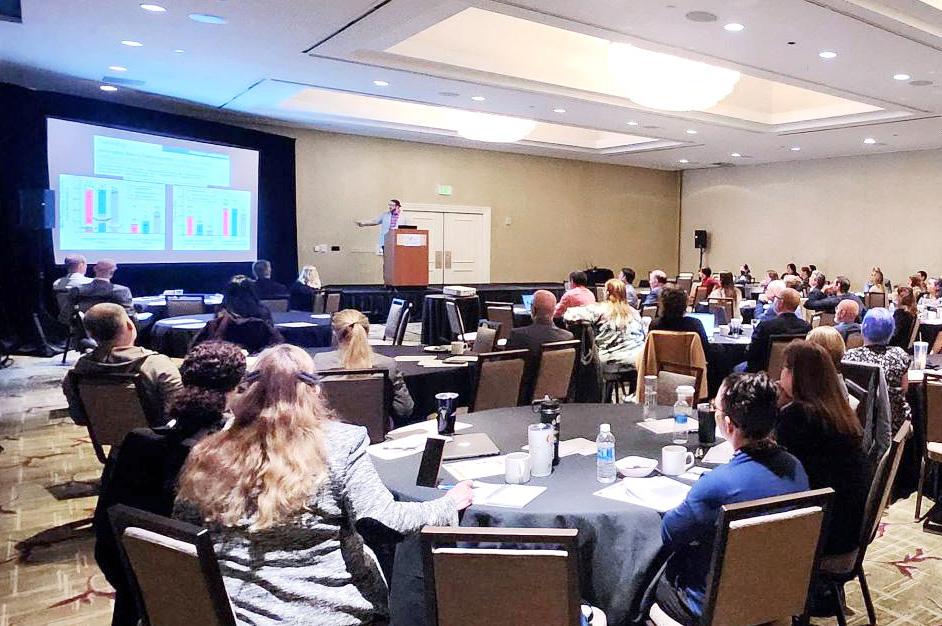

regulation and pre-approval. This leaves a loophole for AI-based systems to be brought to market without any prior testing and without disclosure about the source of the data they use. The CVMA thanks Dr. Cohen for his insightful presentation on AI, and we anticipate offering additional AIrelated presentations at forthcoming conferences, seminars, and webinars.
The Leadership Forum also featured a discussion led by CVMA Director of Regulatory Affairs Dr. Grant Miller on the CVMA’s new telemedicine policy, crafted by the CVMA’s telemedicine task force and Board of Governors after the passage of Assembly Bill (AB) 1399. The CVMA’s telemedicine policy aims to help practitioners navigate the new telemedical landscape established by AB 1399, which permits a VeterinarianClient-Patient Relationship to be
established through “synchronous audio-video communication” rather than an in-person examination.
Board and House members also held lengthy discussions on legislation that may be introduced in 2024, including separate bills that would authorize RVTs to perform cat neutering and chiropractors to perform services on animals in absence of veterinary supervision, as well as a possible ban on tail docking and ear cropping procedures in dogs. More information on this year’s legislation, including a bill sponsored by the CVMA to fund High Quality High Volume Spay Neuter (HQHVSN) programs at UC Davis and WesternU, can be found in the Legislative Update on page 12.
The CVMA thanks all who participated in the Leadership Forum!
15 cvma.net/publications
Dr. Eli Cohen gives his keynote presentation on the topic of artificial intelligence in veterinary medicine.
The CVMA Board of Governors and House of Delegates attend Dr. Cohen's keynote.
LEADERSHIP FORUM
CVMA Director of Regulatory Affairs Dr. Grant Miller reviews the CVMA's new telemedicine policy and 2024 legislation impacting veterinary medicine.
In Tribute:
Dr. George Bishop

It is with a very heavy heart that the CVMA says goodbye to Dr. George Bishop, who passed away this January at the age of 83. Dr. Bishop was a monumental force in organized veterinary medicine who led the profession with unwavering dedication and kindness. He was a cherished friend to many, and we were very fortunate to have had his expertise and wisdom guide the CVMA for decades.
Below are words of remembrance from some of Dr. Bishop’s closest friends in California veterinary medicine.
Dr. Chris Cowing:
“The life of George Bishop to me was summed up by his remembrance service held January 19, 2024. George’s sister spoke first and talked about loyalty and love for his family. Although he had no children and wasn’t married, he always remembered birthdays and anniversaries with gifts and phone calls or cards. He and his sister would talk once weekly. He was a BIG FAN of The Ohio State football team. She also talked of him growing up in rural Ohio where he participated in 4-H.
George was a dedicated veterinarian. He worked seven days a week and was often the last to leave. To cheer things up at the office he would play 70’s pop music at the end of the appointment day. Several clients and staff spoke about his sage advice regarding their pets and how he helped them make the sometimes difficult decisions that clients have to make.
Despite his service being held on the same day as the CVMA Board of Directors and House of Delegates meetings, numerous veterinarians were in attendance who had either worked with George or who knew him from the CVMA. Some traveled from the Bay Area, the Central Valley, Los Angeles, and Pacific Grove to attend. On display at his remembrance were the
numerous honors, plaques, accolades, and certificates that he has deservedly earned over the 54 years that he had practiced veterinary medicine.
I remember George to always be prepared for meetings. He was a private person, but spoke up when the cause demanded it. He could be kidded and could kid right back with good humor. He was generous, often treating everyone at the table to a bottle of good wine at dinners between meetings. He was a creature of habit: he wore the same suit and tie to every meeting. The joke was that he wore that same suit and tie to the Fishing Club vacations in Alaska. Finally, I would say that the ultimate description of George Bishop is that he is the embodiment of what it takes to be a CVMA Lifetime Achievement Award winner.”
Val Fenstermaker, former Executive Director of the CVMA:
“It was a privilege to know George. He was a thoughtful leader, amazingly dedicated with his time, and highly respected throughout the veterinary profession. I was always impressed by his vision and unique ability to quietly enlighten others. He was a wonderful friend, humble and kind and will be dearly missed.”
16 California Veterinarian | March–April 2024 TRIBUTE TO DR. GEORGE BISHOP
Dr. Bill Grant:
“Remembrance of a colleague, a fishing buddy, a brother, and…a friend. George Bishop was one of a kind. Meeting him for the first time at an Insurance Committee meeting many years ago, I realized George was the quiet type, but this didn’t stop him from being recognized and sought after when a task needed to be done. At that meeting, the Committee Chair was looking for volunteers for a project. As typically happens when seeking volunteers, the room went quiet and no one spoke up to volunteer. Then, from the back of the room, one of the committee members piped up: ‘Have George Bishop do it, he’ll get the job done!’ No truer words were ever spoken. George always got the job done... perfectly, no matter what he did, which was a testimony to his dedication and thoroughness. And he always looked great doing it!
Through the many years of Board and Committee meetings, nothing is more memorable or meaningful than the friendships we make along the way, and George truly valued those friendships. George’s friendship filled my heart and the hearts of all his friends; we will miss George’s handshake, hug, and smile, and sharing our wild fishing trip stories over a bottle of Silver Oak. God bless George, our friend and brother. You will be forever remembered.”
Dr. Phillip Nelson, Ph.D.:
"I first met George at a Board of Governor’s meeting. I quickly noticed that—when given the choice—he always chose to sit in the back of the room (with two other people of questionable repute) and for the most part kept to himself. Then he would give the treasurer’s report with such clarity and understanding that it became transparently clear he had worked with the organization for a long, long time. Over the eighteen years that I’ve been associated with CVMA, I developed a deep respect for George and the value-
added contributions he provided to CVMA and AVMA. It is the shoulders of dedicated people like George Bishop that secure the achievements we seek in professional organizations and that build the foundations we stand upon as a profession. His contributions to both the CVMA and the AVMA were singularly exceptional and established a model of professional commitment we should all seek to emulate.
I sometimes wonder why I was one of the fortunate who bonded in friendship with him. The only thing he seemed to care more about than his profession were his friends! I choose to wallow in the bliss of having known him and being amongst his chosen friends. I will miss him.”
Dr. Richard Sullivan:
“George was the quintessential person of organized veterinary medicine. He always came to meetings knowing the material in depth, especially financials and legislative issues. He didn’t say much unless asked or if he seriously disagreed with you. His impact at CVMA and AVMA was significant without any fanfare or noise. He was CVMA treasurer for 24 years, VISC treasurer, and AVMA Foundation treasurer during a difficult time. He was in AVMA’s House of Delegates for 16 years and on the Board of Directors for six years, and at his death, he was on the AVMA PAC. The AVMA Advocacy Award is given occasionally to legislators for their work in Washington DC who have contributed significantly on veterinary issues. George was the first veterinarian to receive this award in recognition for his work and influence at AVMA’s office in DC. There has been only one other veterinarian to receive this award since. The AVMA Board of Directors has approved naming the AVMA Congressional Fellow Program after him. He touched many people in a quiet and positive way. He was fun to hang out with. Our profession has lost a giant.”

17 cvma.net/publications
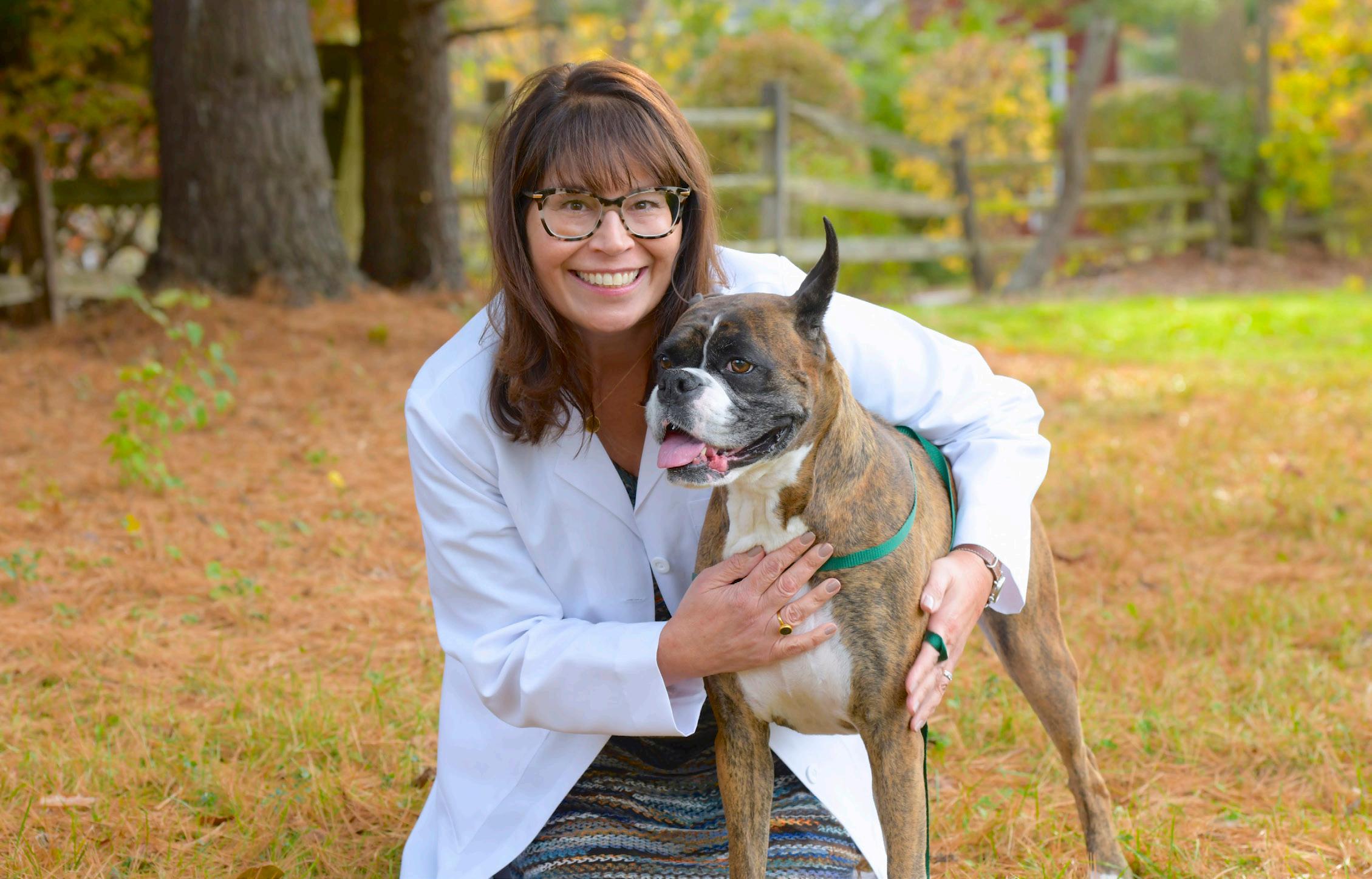
Treating Yourself Through a Dog's Eyes
By Renee Alsarraf, DVM, DACVIM (Oncology), 2024 Pacific Veterinary Conference Keynote Speaker
They say that a dog is man’s best friend. I would argue that they are also incredible models for us humans. I believe that dogs are not just companions for us, but fantastic guides for when we struggle—and we all struggle at times. Unfortunately, I learned this the hard way.
I have been a veterinary oncologist for almost thirty years. It is never an easy job given the serious topic, but it is a fulfilling profession. Looking back, however, I now see how easy it was for me to lose sight of me: running a practice, answering to clients and employees, paying bills, being a mom and a wife, keeping up the house. There was little-to-no time for self-care. In fact, I didn’t even feel comfortable with that term.
In 2018, at the height of being extremely busy professionally, I developed the c-word. I realize it is called cancer; yet, with my dysfunction on full display, I cannot say that word in conjunction with myself. For decades, I have battled this disease for my patients, participated in veterinary clinic trials to further science, hugged pet parents as they wept on my shoulder, but for me, I could only call it the c-word. As much as I thought
18 California Veterinarian | March–April 2024 PACVET KEYNOTE SPEAKER
I knew about cancer, I soon came to realize that the four-legged among us know so much more.
For dogs are wise in ways that humans are not. It was my patients—those furry, four-legged, slobbering animals—who seemed to uniquely understand my difficult journey and who showed me the true power of care and unconditional love. I was determined to fight for my life. I noticed, though, a pretty big discrepancy between the human patients in the waiting room of the cancer treatment center (me included) and my own veterinary cancer patients. Dogs went through this process better than most people, or at least better than I did. They came to my vet clinic pulling on the end of their leash, sniffing the ground for a morsel of a biscuit. When I entered the cancer center, my tail was between my legs.
Thankfully, these canines set the bar higher for me. They were my cancer recovery role models. True, biologically animals perhaps heal faster, recover quicker, don’t lose their “hair” like we do, but there is also a less tangible factor to their success. I believe that dogs possess a magical ability in how they approach life. How fortunate I was to see this, to finally understand it after thirty years in the field. Every day in my veterinary practice I bear witness to the undeniable bond between pets and their people. However, while we are busy trying to teach them to sit and stay (and as veterinarians, help heal them), canines have their own, more profound, lessons to impart.
So, I wrote a book entitled Sit, Stay, Heal: What Dogs Can Teach Us About Living Well. I went on a long book tour. I discussed the many different ways in
For dogs are wise in ways that humans are not. It was my patients—those furry, four-legged, slobbering animals—who seemed to uniquely understand my difficult journey and who showed me the true power of care and unconditional love.
How fortunate we are to work in this industry. Sure, it can be a very stressful profession. Between practicing through the COVID-19 pandemic and working in a job sector with a shortage of veterinarians and veterinary staff, our profession takes a big toll on us. Perhaps if we take a step back, reminding ourselves why we entered this all-encompassing profession, and take a big nod from our four-legged friends who are so eager to show us the way, we would be better off for it.
In her keynote presentation at the 2024 Pacific Veterinary Conference, Dr. Alsarraf will expand on the lessons she has taken from her patients in her own lifejourney and how we can all apply those lessons to help us live better, take care of ourselves and each other better, and ultimately be happier.
which dogs guide us—through being mindful, not judging, living as a pack animal, understanding the sanctity of self-care, modeling the true definition of friendship, celebrating imperfections, making use of the power of the waiting room—the list goes on. But I made another big discovery: as I lectured about animals guiding us, I realized that people are more open to listening and receiving information when it is presented in “dog form.” No false pretenses, no barriers to hurdle. People were open to learning how to live happier with dogs not just by their side but as their teacher. What I got back was immense. Despite no longer working in the clinic, I was able to continue to touch numerous lives, helping these pet parents not by caring for their pet, but by showing them the incredible lessons our pets are here to teach us.
Dr. Renee Alsarraf graduated with her DVM degree from Michigan State University (MSU), where she created the university’s pet loss support group. She then completed a rotating internship and medical oncology residency in New York City at the Animal Medical Center. Dr. Alsarraf is a senior veterinarian at Animal Medical Center and serves on the MSU College of Veterinary Medicine Admissions Committee. Her memoir, Sit, Stay, Heal: What Dogs Can Teach Us About Living Well, celebrates the humananimal bond.
19 cvma.net/publications
JULY 11–14 ,2024
HILTON SAN FRANCISCO UNION SQUARE
Hosted by the California Veterinary Medical Association
Four Days | 200+ Sessions | In-Person and Virtual Tracks | Two-Day Vet Expo | One Iconic Location





THE CVMA’S 2024 PACIFIC VETERINARY CONFERENCE
#PacVet2024
Topics by Track
K EYNOTE S REKAEP
KICK OFF PACVET 2024 WITH AN INSPIRING STORY ABOUT RESILIENCE!
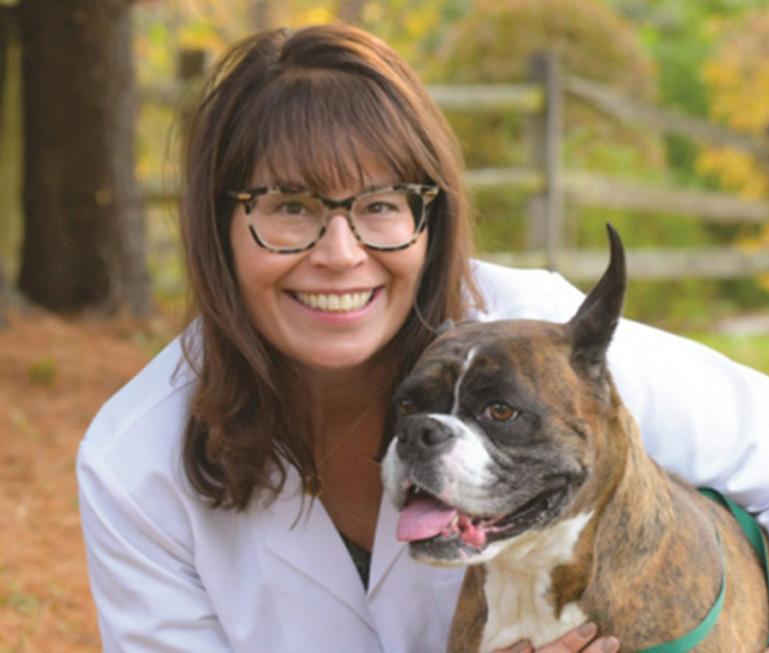
KEYNOTE PRESENTATION
Renée Alsarraf, DVM, DACVIM (Oncology)
PacVet is excited to feature a wonderful keynote presentation by Renee Alsarraf, DVM, DACVIM (Oncology) on “Treating Yourself
Through a Dog's Eyes.” Dr. Renee Alsarraf graduated with her DVM degree from Michigan State University (MSU), where she created the university’s pet loss support group. She then completed a rotating internship and medical oncology residency in New York City at the Animal Medical Center. Dr. Alsarraf is a senior veterinarian at Animal Medical Center and serves on the MSU college of Veterinary Medicine Admissions Committee. Her memoir, Sit, Stay, Heal: What Dogs Can Teach Us About Living Well , celebrates the human-animal bond.
IN-PERSON AND VIRTUAL TRACKS
CONFERENCE WELCOME by the CVMA President, Keynote
Presentation by Dr. Renee Alsarraf, CVMA Awards Recognition
Ceremony, and Induction of the 2024–2025 CVMA Board of Governors
SMALL ANIMAL MEDICINE
Oncology
Renee Alsarraf, DVM, DACVIM (Oncology)
Gastroenterology
Frederic Gaschen, Dr.med.vet. DACVIM (SAIM), DECVIM-CA, DVM
Diagnostic Imaging
Lorrie Gaschen, DVM, Dr.med.vet, Ph.D., DECVDI
Cardiology
Bruce Kornreich, DVM, DACVIM, Ph.D.
Clinical Pathology
Gwen Levine, DVM, DACVP (Clinical Pathology), DACVR-DI, DACVR-EDI
Neurology
Jon Levine, DVM, DACVIM (Neurology)
Evidence-Based Medicine
Brennen McKenzie, MA, MSc, VMD
Ophthalmology
Tomo Wiggans, DVM, MEng, DACVO
TECHNICIAN
Dentistry
Mary Berg, BS, RVT, LATG, VTS (Dentistry)
Medicine and Leadership
Walter Brown, Jr., RVTg, VTS (ECC)
Anesthesia and Pain Management
Kristen Cooley, BA, CVT, VTS (Anesthesia/Analgesia), VCC
Emergency Critical Care
Courtney Waxman, MS, CVT, RVT, VTS (ECC)
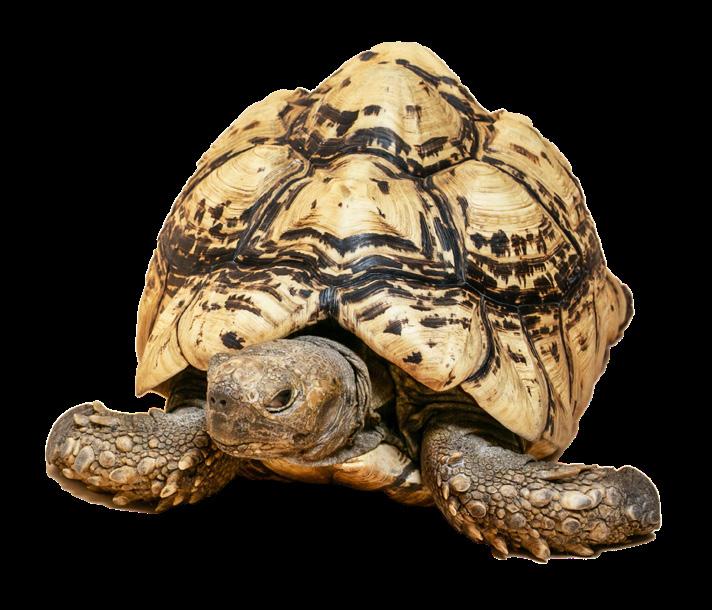
 Additional speakers are being added. For the most up-to-date list of speakers, sessions, and schedule, visit the CE Program tab at PacVet.net. Speakers are subject to change.
Additional speakers are being added. For the most up-to-date list of speakers, sessions, and schedule, visit the CE Program tab at PacVet.net. Speakers are subject to change.
Topics by Track
IN-PERSON
ONLY TRACKS (Schedule speakers as of February 27, 2024)
SMALL ANIMAL SURGERY
Soft Tissue Surgery of Dogs and Cats
Stephen Birchard, DVM, MS, DACVS
Orthopedic
Stephen Jones, MVB, MS, DACVS-SA, DECVS
Dentistry/Oral Surgery
Mark Smith, VMD, DACVS, DAVDC
SHELTER MEDICINE
Shelter Medicine Practice
Erin Doyle, DVM, DABVP (Shelter Medicine Practice)
Shelter Medicine Practice
Jeanette O’Quinn, DVM, MPH, DACVPM, ABVP (Shelter Medicine)
DIVERSITY, EQUITY, AND INCLUSION (DEI)
Topic TBD
Allison Cardona
ONE HEALTH
Anti-Aging/Longevity
Heather Oxford, DVM, MPH, CVA, CCRT, ABAAHP
Changes in California's One Health
Kim Conway, DVM, MPVM
Overview on How Local Practitionees Can Be Involved in Their Communities
Ashley Patterson, CVET
Sustainability in Veterinary Practice
Diccon Westworth, BVSc (Hons), DACVIM, NCT
PRACTICE MANAGEMENT
Financials, Budgets, Quick Books, and More
Heather Prendergast, RVT, CVPM, SPHR
Veterinary Team Development
Rebecca Rose, RVT, CPEP
Efficiency: From Chaos to Control
Peter Weinstein, DVM, MBA
Ask Us Anything! Your Practice Management Questions
Answered, Candidly
Heather Prendergast, RVT, CVPM, SPHR, Rebecca Rose, RVT, CPEP, and Peter Weinstein, DVM, MBA
Additional speakers are being added. For the most up-to-date list of speakers, sessions, and schedule, visit the CE Program tab at PacVet.net. Speakers are subject to change.
USDA’S NVAP ACCREDITATION
APHIS Approved Supplemental Training (AAST)

In-person attendees have access to:
• Up to 28.5 CEUs
• Keynote Presentation
• Enjoyment of all that San Francisco has to offer
• Labs, workshops, and symposia
• The two-day Vet Expo
• Complimentary breakfast (all four days) and complimentary lunches on Friday and Saturday
• Rabies Titer Testing
• Fun events, including the Vet Expo Mixer, the Technician Fair, the President’s Reception, and Alumni Receptions
• Lecture notes
• Fun raffles prizes


22 California Veterinarian | March–April 2024
Topics by Track Sponsored Labs
VIRTUAL-ONLY TRACKS
(Schedule speakers as of February 27, 2024)
AVIAN/EXOTICS
Endoscopy on Birds, Small Mammals, and Reptiles
Stephen Divers, BVetMed, DZooMed, DECZM (Herp), DECZM (ZHM), DACZM, FRCVS
Pathology Findings in Reptiles, Birds, and Small Mammals
Michael Garner, DVM, DACVP
Anesthesia and Pain Control
David Guzman, LV, MS, DECZM (Avian Small Animal), DACZM
Emergency Critical Care
Laila Proenca, MV, MSc., Ph.D., DVM, DACZM
EQUINE
Biological Therapies
John Peroni, DVM, MS, DACVS
Equine Opthalmology
Anne Gemensky Metzler, DVM, MS, DACVO
Forensics, Animal Abuse, Racing Breakdowns
Alina Vale, DVM
Internal Medicine
Erin Groover, DVM, DACVIM-LA
The State of the Equine Veterinary Profession
Christopher Doherty, DVM, CBV, MBA

Reserve your spot before they sell out!
KARL STORZ VETERINARY ENDOSCOPY: Tackling GI Disease in Small Animals: When, How, and Why to Implement Endoscopy into Your Practice (Thurs) Dr. Todd Tams

• $450 additional registration fee is required. Lecture and lab included. Limited to 20 registrants (DVMs and RVTs only).
ESAOTE BASIC ULTRASOUND LAB (Fri, Sat)
Katie Moore
• $450 additional registration fee is required. Lecture and lab included. Limited to 20 registrants (DVMs only).

ESAOTE INTERMEDIATE ULTRASOUND LAB (Fri, Sat)
Katie Moore
• $450 additional registration fee is required. Lecture and lab included. Limited to 20 registrants (DVMs only).

RECOVER CPR: Basic and Advanced Life Support Rescuer Certification Workshop (Sun)
Kenichiro Yagi, MS, RVT, VTS (ECC) (SAIM)
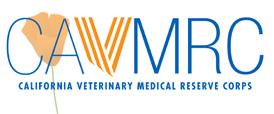
• $450 additional registration fee is required. Lecture and lab included. Limited to 20 registrants (DVMs and RVTs only)
Sponsored Symposia
Sponsored by:
Proper Use of Legal Entities for Lawsuit Protection and Tax Reduction
Dan McNeff, CEO
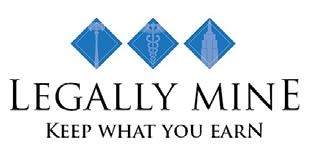
23 cvma.net/publications
Additional speakers are being added. For the most up-to-date list of speakers, sessions, and schedule, visit the CE Program tab at PacVet.net. Speakers are subject to change.
• Up to 28.5 CEUs • Live and interactive instruction, including live Q&A • Lecture notes • Raffle prizes Virtual attendees have access to:
2024 Sponsors and Exhibitors
Thank you to the 2024 PacVet Sponsors!

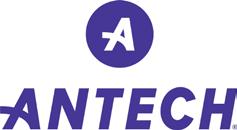




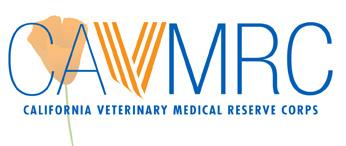
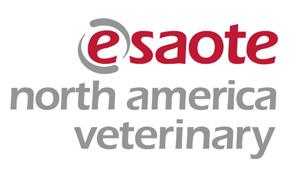

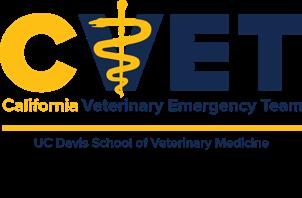

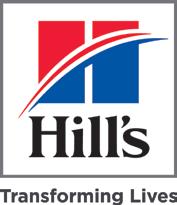


Vet Expo 2024 Registered Exhibitors
AS OF FEBRUARY 27, 2024
Our exhibitors are valued industry partners who generously support PacVet 2024, lowering costs across the board. Make sure to visit with exhibitors at their booths in the Vet Expo as they display the latest and greatest products and services for the veterinary profession!
A&E Medical Systems
Advanced Monitors Corp
American Regent Animal Health
Analgesic Services, Inc.
Antech
Avant Wellness
Avid Identification Systems
Banfield Pet Hospital
Bank of America Practice Solutions
Bionote
Bird Dog Recruiting & Consulting
Blue Buffalo/Blue Natural Vet
Blue River PetCare
BluePearl Specialty + Emergency Pet Hospital
Boehringer Ingelheim Animal Health USA
California Veterinary Emergency Team
California Veterinary Medical Reserve Corps
Capstone Financial Group
Cardiac Vet
CareCredit
Cat and Dog Modern
Christian Veterinary Mission
Clarius Mobile Health
CNA Insurance
Core Imaging
Cubex
Curo Pet Care
Doctor Multimedia
DragonVeterinary Canada Ltd.
Elanco Animal Health
Elite Payment Group
ELvation Medical
Enova Illumination
Epicur Pharma
Esaote North America
Evette
ezyVet
GerVetUSA Inc
GlobalVetLink
Golden Hour
Hidow International
Hill's Pet Nutrition, Inc.
Horizon Veterinary Specialists
I3 Commerce Technology
IDEXX
Jorgensen Laboratories
KARL STORZ Veterinary Endoscopy
Koefran Pet Memorial Services
Legally Mine
Lenity Vet Specialists + Emergency Care
Medi Lazer
Medical Pet Shirts International BV
MediLoupes
Merck Animal Health
MiDOG Animal Diagnostics Mixlab
MWI Animal Health
Nationwide (Pet)
NectarVet
Newvetequipment.com / Usedvetequipment.com
Nutramax Laboratories Veterinary Sciences, Inc.
Nuvodia
Omni Practice Group
Pacific Professionals, Inc.
PawfectNotes
Pawlicy Advisor
Pet Emergency and Specialty Center of Marin
PetDesk
PetIq
PetSmart Veterinary Services
PetVet Care Centers
Preferred Employers Insurance
Probo Veterinary
Purina® Pro Plan® Veterinary Diets
Remedy Veterinary Specialists
Roo
Rose Micro Solutions LLC
Royal Canin
SAGE Veterinary Centers
Schultz Technology
Shepherd Veterinary Software
Solutions by Design
Southern Veterinary Partners
Standard Process Inc.
Talkatoo.Inc
Tuttnauer USA
UC Davis Veterinary Medical Teaching Hospital
United Veterinary Care
Universal Imaging, Inc.
VDI Laboratory
VDx Pathology
Vetamac
VetBooks By Success Concepts
Vetcor
Veterinary Emergency Group
VetnCare
VetriScience
Victor Medical Company
VISC
Wedgewood
YuMove ADVANCE 360
Zoetis
Zomedica
24 California Veterinarian | March–April 2024 TOPAZ EMERALD DIAMOND
®
Conference Hotel and Venue
Located in the heart of San Francisco’s restaurant, theater, and shopping district, the beautiful Hilton San Francisco Union Square is the site of PacVet 2024!
HILTON SAN FRANCISCO UNION SQUARE
333 O’Farrell Street
San Francisco, CA 94102

Just 14 miles from SFO, or 19 miles from Oakland International Airport!
Secured self-parking available onsite for the discounted rate of $45/day. Valet parking $69 per night.
EV charging stations available onsite.


DISCOUNTED ROOM RATE
Discounted rates available until June 19, 2024, or until the block fills up—whichever comes first.
Register for the 2024 Pacific Veterinary Conference
There’s still time to SAVE on PacVet: Register by March 29, 2024 to save up to $100!*
In an effort to be environmentally friendly, we are eliminating paper registrations.
Register online at PacVet.net.
If you need help with registration, call 800.655.2862 for staff assistance.
*Based on a full conference veterinarian registration.

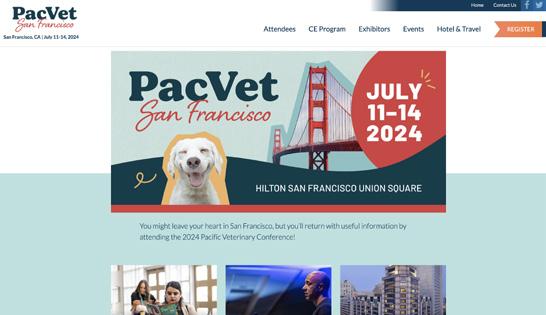

Under Pressure
By Kristen Cooley, BA, CVT, VTS (Anesthesia/ Analgesia), VCC, 2024 Pacific Veterinary Conference Speaker
Our goal as anesthetists is to provide our patients with an expert balance between the effects of anesthetic drugs, both wanted and unwanted, the effects of underlying illness, and the intensity of procedural stimulation. To achieve this, we must depress the central nervous system sufficiently to keep our patients unaware and relaxed, immobile, and pain-free, while at the same time maintaining near-normal cardiopulmonary function.
This compromise to homeostasis brings with it the potential for problems. However, the source for most anesthetic complications is human error (70%), and those errors are often associated with poor patient monitoring. Constant vigilance of the anesthetized patient allows us to be proactive rather than reactive through anesthetic depth adjustment and need-based patient support. As anesthetic drugs have become more refined and physiologic monitors more sophisticated, successful anesthesia is no longer defined as the lack of mortality—just surviving anesthesia isn’t enough—but by the lack of morbidity. Our goal is to bring patients through the anesthesia experience without any ill effects.
The American College of Veterinary Anesthesia and Analgesia (ACVAA) recommends frequent and continuous monitoring by trained personnel of circulation, oxygenation, ventilation, and body temperature. Appropriate physiologic support through the utilization of hands-on monitoring (pulse palpation, evaluation of reflexes, etc.) in conjunction with physiologic monitors can improve the practice of veterinary anesthesia. However, anesthetic monitors are only as good as the person using them; it takes a well-trained technician to be able to recognize abnormalities and know how to respond correctly.









One of the most important parameters that we diligently monitor is blood pressure. Adequate blood pressure is necessary to deliver oxygen and nutrients to all tissues in the body. The components of blood pressure include systolic blood pressure; the peak pressure during contraction of the heart (80-160 mmHg in all species), diastolic blood pressure; the minimum pressure within the vessels during relaxation of the heart (50100 mmHg in all species); and mean blood pressure (MAP)—physiologically the most important value in the anesthetized patient because it represents the driving pressure for organ perfusion (60-120 mmHg).
Blood pressure assessment doesn’t stop there! Evaluating why a blood pressure reading is abnormal requires a deeper understanding of what might be happening. For example, arterial blood pressure is comprised of cardiac output (CO) and systemic vascular resistance (SVR). Cardiac output is the volume of blood pumped by the heart over one minute; it is made up of stroke volume (SV; the volume of blood ejected with each beat) and heart rate (HR; the number of beats per minute). Stroke volume is the product of contractility (the intrinsic strength of the heart muscle), lusitropy (the ability of the heart to relax and fill with blood), preload (the volume of blood dumped into the right atrium, directly affected by blood volume), and afterload (the pressure that the heart needs to beat against). Systemic vascular resistance is the pressure that must be overcome to push blood through the circulatory system. SVR can be thought of as the degree of blood vessel constriction and it is made up of


vessel diameter (the size of the vessels) and afterload (the pressure that the heart needs to beat against).
An example of how this might look clinically includes appreciating that a high diastolic blood pressure likely indicates vasoconstriction (increased SVR). Alternatively, a low diastolic may indicate vasodilation and might respond to a reduction in inhalant levels (most potent vasodilator) or a fluid bolus (filling the vascular space).
Of course, there are other parameters to evaluate; however, hypotension seems to cause hypertension in the anesthetist!
The topic of Kristen Cooley’s presentations at the 2024 Pacific Veterinary Conference will be anesthesia. Attend her sessions in the Technician track either in-person in San Francisco or online via PacVet’s virtual option.
Kristen Cooley is a Veterinary Technician Specialist in anesthesia and analgesia. She started her career at the University of Wisconsin’s School of Veterinary Medicine, where she spent 15 years honing her passion and skill for anesthesia and pain management through managing routine and critical anesthetic cases and teaching in the DVM curriculum. Currently, Kristen is the founder and CEO of the Wisconsin-based anesthesia consulting business Veterinary Anesthesia Support and Training (VAST).
26 California Veterinarian | March–April 2024
Arterial Blood Pressure Cardiac Output Systemic Vascular Resistance Lusitrop Contractility Stroke Volume Heart Rate Preload Afterload Blood Volume Vessel Diameter Blood Viscosity
RVT
CVMA Certified Veterinary Assistant Program
The CVMA’s Certified Veterinary Assistant (CVMA CVA) Program is an opportunity for veterinary assistants to expand their knowledge and advance their careers in the veterinary profession.
Veterinary assistants learn through online education, in-practice practical experience, and skills assessments under the supervision of licensed veterinarians and RVTs before their final examination.
The CVMA CVA program now offers Level I (basic knowledge) and Level II (advanced knowledge)!
Benefits to Veterinary Assistants:
• Professional growth and increased value to the veterinary team
• Proficiency in medical terminology, nursing skills, surgical preparation, and much more
• The ability to learn while continuing to work
• One year of complimentary CVMA membership upon completing Level I certification
For full program information, visit the Resources tab at cvma.net.



Overcoming Cultural Barriers to Seeking Mental Health Support
By Sara ElMakawy, MSW, Licensed Clinical Social Worker, TELUS Health
Mental health support is an invaluable service, whether it’s accessed privately with a therapist, from a local community organization, online, or through your organization’s assistance program. Yet people who have these options often hesitate to use them when they find themselves suffering from a mental health issue like depression, severe anxiety, an eating disorder, or a substance abuse problem.
Why? Often, it's a cultural barrier that deters people from seeking support. If this describes you or someone you know, read on for ways to overcome hesitancy and get the needed help.
Cultural Barriers Are Common
Although attitudes about mental health problems like depression have been changing, there can still be stigmas attached to mental illness. You may find, or believe, that friends and family members see your struggles (or would see them) as a sign of weakness. You may fear being labeled. Pride can get in your way, too. You may believe that you should be able to handle any problem you have on your own. Stigmas can be especially strong in some cultural groups.
• The National Council for Mental Wellbeing notes that among many communities of color, mental health concerns can still be a taboo subject. African Americans are less likely than
white Americans to pursue treatment and more likely to end their treatment prematurely.
• According to the National Alliance of Mental Illness (NAMI), Latinx people are less likely than other ethnic groups to seek mental health treatment. Dr. Juan-Carlos Zuberbuhler explains that for many in these communities, "talking about mental health issues is difficult for cultural reasons—including feeling shame and fear that others will judge or label you."
• Religious beliefs can pose barriers to seeking mental health care. Christian fundamentalists may be told their symptoms are a punishment, or demonic in origin. And the American Psychiatric Association notes that Muslims are often less likely than the
28 California Veterinarian | March–April 2024 TELUS HEALTH
ISTOCK
PHOTO AND ILLUSTRATION
If a cultural barrier is inhibiting you or a loved one from seeking needed help, there are a number of steps you can take to overcome it.
general population to avail themselves of mental health services—they may feel the health care system isn't equipped to provide culturally sensitive care, or they may believe seeking psychiatric care shows spiritual weakness.
• Studies have found that Asian Americans utilize mental health-related services at only one-third the rate of white Americans. Mental health may be a taboo subject in their community, or they may feel so much pressure to succeed academically or professionally that they ignore symptoms.
Overcoming Cultural Barriers
If a cultural barrier is inhibiting you or a loved one from seeking needed help, there are a number of steps you can take to overcome it.
Remember that the mind and body are intimately connected. From a medical standpoint, a mental illness is no different from a physical one. There's no need to feel shame about seeking mental health care any more than there is about seeing a doctor
when you're physically ill. A mental health problem isn't something you caused. It's something you need care for.
Educate and inform yourself. Whatever problem you're having, countless others have also dealt with it and are dealing with it now. Look on the web, in social media, or locally for information, support groups, and advice. It's helpful and reassuring to learn how not-alone you are and to hear about others' experience with different therapeutic options.
Reach out to supportive friends or family. Talking things over with a trusted person can help get your problem out into the open, give you clarity about the best way to tackle it, and reassure you that you're not alone.
Remember that you are not your illness. You are a whole being with abilities and talents, and you deserve to strive for a happy life. A disease, whether mental or physical, is a condition that you have. It doesn't define you.
Seeking help
It can take a lot of courage to seek treatment for a mental health issue, and cultural stigmas make it even harder.
Recognizing the cultural and other barriers affecting you is a big step toward overcoming them. Don't buy into stigmas, don't put up barriers of your own, and if a loved one is struggling, encourage them to seek help and praise them when they do. Reaching out for help is a sign of strength, not weakness.
© TELUS Health 2024

SPONSORED BY:

TELUS Health (formerly LifeWorks) is the CVMA’s Member Assistance Program. This complimentary member benefit offers confidential consultations, information and resources about work-life/wellbeing, connections to community agencies and supports, and referrals to counseling. If you are a CVMA member, you should have received an email invitation to join TELUS Health (or LifeWorks). If you have not received the email, please contact Jennifer Smith at jsmith@cvma.net.
29 cvma.net/publications
Unique Insights from a Euthanasia Veterinarian
By Leigh Stevens, DVM
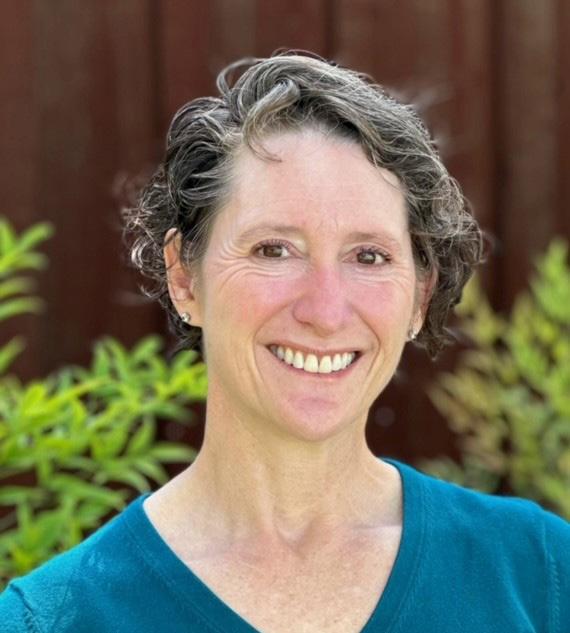
When you graduate from veterinary school, you never know where your journey will take you. I would have never envisioned myself as an in-home euthanasia veterinarian—but this is where I found contentment and gratification. Right out of veterinary school, I took a job at a feline-only practice. I later transitioned into a general practice that had a large number of geriatric patients. I found that anesthesia, pain management, dermatology, and internal medicine were my favorite self-study topics. At one point, I ran a practice but soon discovered that it didn’t appeal to me. I left general practice when my daughter was born but happily found a job where I could work parttime—a physical rehabilitation and therapy practice for animals, where I still work.
In December of 2022, with my children mostly grown and extra time on my hands, I started looking for an additional way to help both people and animals. I began shadowing several veterinarians who were doing in-home euthanasia and discovered it was compatible with my skills. Having not practiced surgery or even seen a healthy young animal for many years, I wouldn’t have to relearn everything necessary to be a successful generalist, and I could
utilize my minor in psychology and interest in supporting those with mental health challenges to help grieving clients.
Since April 2023, I have worked as an in-home euthanasia veterinarian for cats and dogs at Restful Paws in the San Jose area. It is a fulfilling position for a number of reasons:
• I enjoy driving and being outside, rain or shine.
• I am a people person and a healer, and it doesn’t matter if it is for people or animals. I enjoy connecting and relating to people of all ages and interests. I challenge myself to personally connect with every client and give them the end-of life transition experience that supports their needs. Sometimes this means grief education, sometimes talking, sometimes neither. But it definitely means listening and giving validation.
• I love hearing stories from clients about how their pet’s presence impacted their lives in a positive way, and I am encouraged each time I see the “Hallmark movie” version of the humananimal bond in action.
• I appreciate the medical challenge to provide anesthesia to often very old, very critical patients. I want my patients safely anesthetized so their family can say goodbye to their beloved friends on their timetable, at least until the final injection. These guys are a lot stronger than we think! As an advocate for avoiding complicated grieving by our clients, I invite my colleagues, when being the bearer of bad news, to consider allowing critically ill patients, unless actively suffering, to go home with pain control, if only for a day or so, to allow their family to say goodbye with dignity (to cuddle and spoil them rotten, if at all possible) instead of pushing for immediate euthanasia at the clinic.
As with any job, there are challenges. I would say time poses the biggest challenge in this profession. Whether it
“I am proud of the work I do. I feel honored when invited into someone’s home, especially when they are willing to show me their true, authentic selves.”
is traffic, or keeping up with my schedule while allowing clients the time they need to say goodbye, I have to suspend my anxieties. Sometimes I have to practice my own mindfulness for acceptance of the situation and exercise patience.
This is also an emotionally charged job. To maintain my mental health, I exercise regularly and force myself to stay in contact with friends and family so I have a strong support system. Regulation of emotion is something you are encouraged to learn in martial arts (along the way, I received a third-degree black belt in Taekwondo).
I am proud of the work I do. I feel honored when invited into someone’s home, especially when they are willing to show me their true, authentic selves and feel safe enough in my presence to cry, blow their nose, and leave tissues in a pile on the floor. I appreciate being able to support our clients on what is likely one of the worst days of their lives. And I know I have done a good job when clients tell me that it was really nice to meet me, but then awkwardly admit that maybe that isn’t quite the right thing to say and just end with: “Thank you.”
30 California Veterinarian | March–April 2024 UNIQUE INSIGHTS
California’s 2024 Reportable Disease List
By Dr. Emily Nietrzeba, DVM, MPH, CDFA Animal Health Branch
The California Department of Food and Agriculture (CDFA) has reviewed and updated the List of Reportable Conditions for Animals and Animal Products (also known as the “Reportable Disease List”) for 2024, and the current list is included in this edition and is available on the CDFA Reporting Animal Disease website. This website will now also include links to information and factsheets for the conditions on this list to assist with public awareness and education.

The CDFA Animal Health Branch is responsible for reviewing the list annually in collaboration with regulatory and practicing veterinarians, public health veterinarians and advisors, veterinary diagnostic laboratory specialists, subject matter experts, and animal health advisories. The California list also strives to align with reportable conditions as listed by the United States Department of Agriculture (USDA) National List of Reportable Animal Diseases and the World Organisation for Animal Health (formerly OIE). As a reminder, Emergency Conditions must be reported within 24 (twenty-four) hours of suspicion or confirmation, Regulatory Conditions within 48 (forty-eight) hours, and Monitored Conditions within 30 (thirty) days.
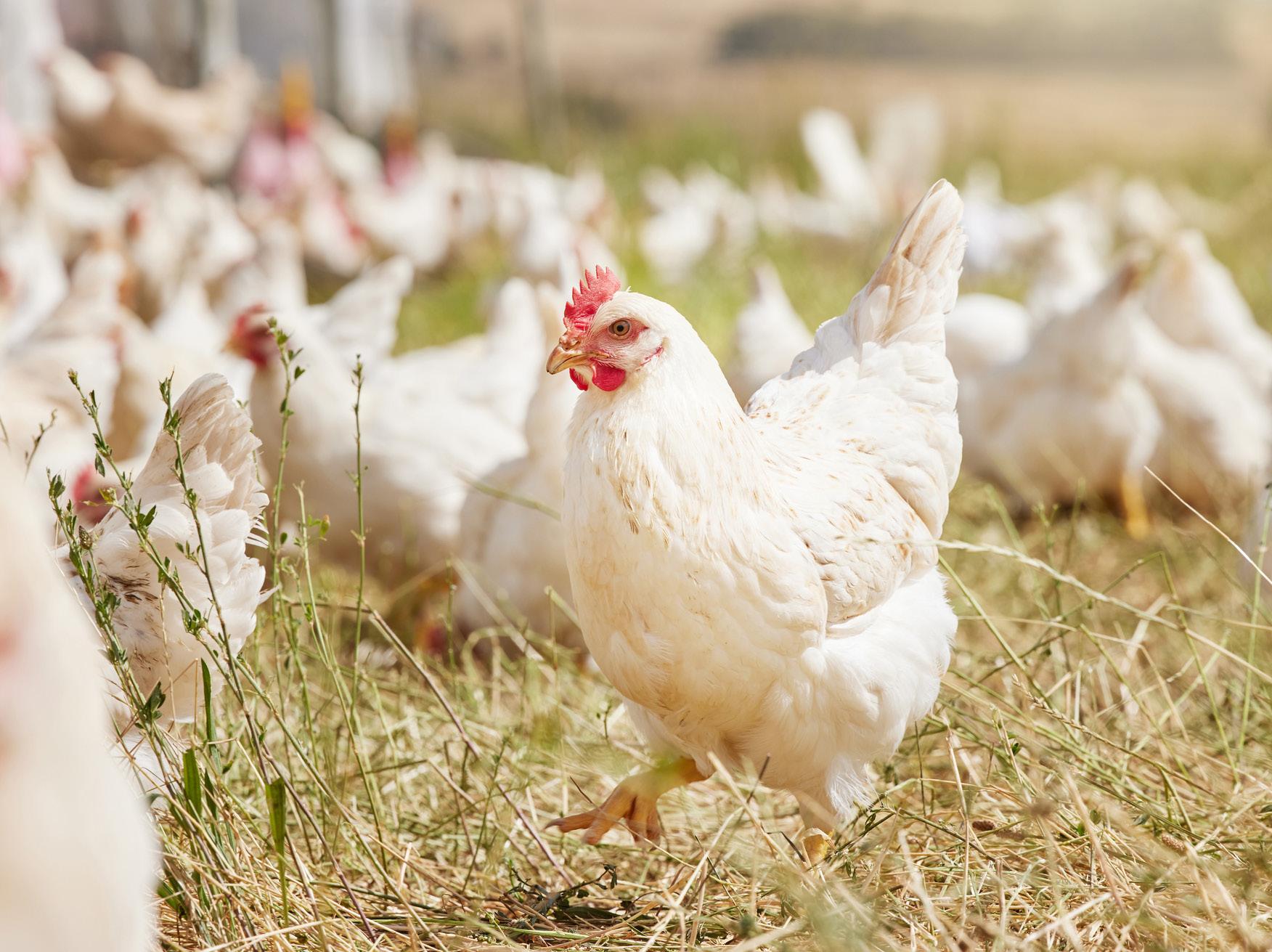
California veterinarians in the clinic and in the field are critical in the early and rapid detection of these diseases and conditions that can have major impacts on California’s animal and livestock populations, including those affecting the food supply chain, as well as providing immediate disease intervention and mitigation. Not only is reporting the conditions on this list mandatory (pursuant to Section 9101 of the California Food and Agricultural Code, Title 3 California Code of Regulations §797 and Title 9 Code of Federal Regulations Section 161.4(f)), but prompt recognition and reporting is invaluable to the protection of animal health in California. Through the voluntary yet essential National Veterinary Accreditation Program (NVAP), accredited veterinarians also provide a crucial service as the eyes and ears of the veterinary medical community with regard to disease surveillance. Accredited veterinarians may be called upon by state and federal animal health officials to assist with disease testing, monitoring, mitigation measures, and quarantine oversight as part of their vital service and inherent responsibilities taking part in this program.
California veterinarians in the clinic and in the field are critical in the early and rapid detection of these diseases and conditions.
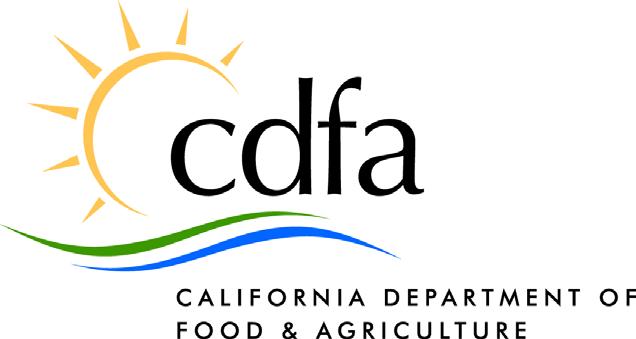
31 cvma.net/publications CDFA

Animal Health Branch
January 20 2 4
LIST OF REPORTABLE CONDITIONS FOR ANIMALS AND ANIMAL PRODUCTS*
*Pursuant to Section 9101 of the California Food and Agricultural Code, Title 3 California Code of Regulations § 797 and Title 9 Code of Federal Regulations Section 161.4(f)
WHO MUST REPORT: Any licensed veterinarian, any person operating a diagnostic laboratory, or any person who has been informed, recognizes or should recognize by virtue of education, experience, or occupation, that any animal or animal product is or may be affected by, or has been exposed to, or may be transmitting or carrying any of the following conditions, must promptly report the condition(s) per the lists below.
WHAT TO REPORT: Immediately report any animal disease not known to exist in the United States, any event with increased mortality and/or morbidity of unknown cause or source and any toxicology condition likely to contaminate animals or animal products (meat, milk or eggs).
IN ADDITION TO LISTED CONDITIONS, CALL IF YOU SEE: High morbidity or mortality, vesicles, unexplained CNS signs, unusual ticks, hemorrhagic septicemias, unusual larvae in wounds, and/or unusual or unexplained illness.
Report any emergency, regulatory, or monitored condition within the provided time frame. Some diseases are listed under the major species of concern; if you see compatible signs for such conditions in another species, PLEASE REPORT!
EMERGENCY CONDITIONS – Report within 24 Hours of Discovery
Redding 530-225-2140, Modesto 209-491-9350, Tulare 559-685-3500, Ontario 909-947-5932, Headquarters 916-900-5002, or APHIS VS at 1-877-741-3690
MULTIPLE SPECIES
General, non-specific conditions: Unexplained high mortality or diseased animals; livestock exposed to toxic substances.
• Anthrax (Bacillus anthracis)1
• Crimean Congo hemorrhagic fever (CCHFV)1
• Foot-and-mouth disease (FMDV)
• Heartwater (Ehrlichia ruminantium)
• Japanese encephalitis (JEV)
• Melioidosis (Burkholderia pseudomallei)
• Rabies of livestock (Rabies virus)1
• Rift Valley fever (RVFV)
• Screwworm myiasis (Cochliomyia hominivorax or Chrysomya bezziana)
• Surra (Trypanosoma evansi)
• Vesicular stomatitis (VSV)
BOVINE
• African trypanosomiasis (Tsetse fly diseases, Trypanosoma spp.)
• Bovine babesiosis (Cattle tick fever, Babesia spp )
• Bovine spongiform encephalopathy (PrPSc)
• Contagious bovine pleuropneumonia (Mycoplasma mycoides mycoides small colony type)
• Foot-and-mouth disease (FMDV)
• Hemorrhagic septicemia (Pasteurella multocida B/Asian or E/African)
• Lumpy skin disease (LSDV)
• Malignant catarrhal fever (wildebeest-associated form, MCFV)
• Rinderpest (RPV)
• Schmallenberg virus (SBV) / Akabane virus
• Theileriosis / Bovine infectious anemia (Theilera parva parva, T.annulate, T.orientalis Ikeda)
CAPRINE/OVINE
• Contagious caprine pleuropneumonia (Mycoplasma capricolum capripneumoniae)
• Foot-and-mouth disease (FMDV)
• Nairobi sheep disease (NSDV)
• Peste des petits ruminants (PPRV)
• Schmallenberg virus (SBV) / Akabane virus infections
• Sheep pox (SPPV) and goat pox (GTPV)
PORCINE
• African swine fever (ASFV)
• Classical swine fever (CSFV)
• Foot-and-mouth disease (FMDV)
• Nipah virus encephalitis (NV)
• Swine vesicular disease (SVDV)
AVIAN SPECIES
• Avian influenza (HPAI and H5/H7 LPAI)
• Turkey rhinotracheitis (Avian metapneumovirus)
• Virulent Newcastle disease (velogenic viscerotropic Newcastle disease, vNDV)
EQUINE
• African horse sickness (AHSV)
• Dourine (Trypanosoma equiperdum)
• Glanders (Farcy; Burkholderia mallei)
• Hendra virus infection (HeV)
• Venezuelan equine encephalomyelitis (VEEV)
CERVIDS/LAGOMORPHS/CAMELIDS
• Middle East respiratory syndrome (MERS-CoV)
1 Diseases in blue, seen in any species, are also reportable to California Department of Public Health (CDPH)
32 California Veterinarian | March–April 2024
CDFA
For additional information, contact CDFA (email: evet@cdfa.ca.gov or visit our website at www.cdfa.ca.gov/ah) or USDA at http://www.aphis.usda.gov/animal_health
REGULATORY CONDITIONS – Report within Two Days of Discovery
MULTIPLE SPECIES
• Brucellosis (B. melitensis, B. abortus, B. suis)1
• Pseudorabies / Aujeszky’s disease (SuHV-1)
• Tuberculosis (Mycobacterium bovis, Mycobacterium tuberculosis)1
• Tularemia (Francisella tularensis)1
BOVINE
• Bovine brucellosis (Brucella abortus)1
• Bovine tuberculosis (Mycobacterium bovis)1
• Trichomoniasis (Tritrichomonas foetus)
CAPRINE/OVINE
• Caprine and ovine brucellosis (Brucella melitensis)1
• Scrapie (PrPSc)
PORCINE
• Porcine brucellosis (Brucella suis)1
• Pseudorabies (Aujeszky’s disease; SuHV-1)
AVIAN SPECIES
• Fowl typhoid (Salmonella gallinarum)
• Influenza A virus H9 and emerging LPAI
• Pullorum disease (Salmonella pullorum)
EQUINE
• Contagious equine metritis (Taylorella equigenitalis)
• Eastern equine encephalomyelitis (EEEV)
• Epizootic lymphangitis (Histoplasma farciminosum)
• Equine herpesvirus myeloencephalopathy (EHM secondary to EHV)
• Equine infectious anemia (EIAV)
• Equine piroplasmosis (Babesia caballi or Theileria equi)
• Western equine encephalomyelitis (WEEV)
• West Nile Virus infection (WNV)
CERVIDS/LAGOMORPHS/CAMELIDS
• Chronic wasting disease (PrPSc)
• Rabbit hemorrhagic disease (RHDV)
MONITORED CONDITIONS – Report within 30 Days of Discovery
MULTIPLE SPECIES
• Bluetongue (BTV)
• Echinococcosis / hydatidosis (Echinococcus spp)
• Epizootic hemorrhagic disease (EHDV)
• Johne’s disease (Paratuberculosis; Mycobacterium avium paratuberculosis)
• Leishmaniosis (Leishmania spp.)
• Q Fever (Coxiella burnetii)
• Severe acute respiratory syndrome (SARS-CoV-2)1
BOVINE
• Anaplasmosis (Anaplasma marginale or A. centrale)
• Bovine cysticercosis (Taenia saginata)
• Bovine genital campylobacteriosis (Campylobacter fetus venerealis)
• Bovine viral diarrhea (BVDV, HoBiPeV)
• Enzootic bovine leukosis (BLV)
• Infectious bovine rhinotracheitis (Bovine herpesvirus-1)
• Malignant catarrhal fever (MCFV, sheep-associated form)
CAPRINE/OVINE
• Caprine arthritis/encephalitis
• Contagious agalactia (Mycoplasma agalactiae, M. capricolum subsp. capricolum, M. mycoides subsp. capri, M. putrefaciens)
• Enzootic abortion of ewes (Ovine chlamydiosis; Chlamydia abortus)
• Ovine progressive pneumonia (Maedi-Visna virus)
• Ovine epididymitis (Brucella ovis)
• Salmonella abortusovis infection
• Sheep scabies (Body mange; Psoroptes ovis)
PORCINE
• Porcine cysticercosis (Taenia solium)
• Porcine reproductive and respiratory syndrome (PRRSV)
• Senecavirus A infection (SVA)
• Swine enteric coronavirus diseases, including transmissible gastroenteritis
• Swine influenza (SIV or S-OIV)
• Trichinellosis (Trichinella spiralis)
AVIAN SPECIES
• Avian infectious bronchitis (IBV)
• Avian infectious laryngotracheitis (ILTV)
• Duck viral hepatitis (DHAV)
• Goose parvovirus infection (GPV)
• Infectious bursal disease / Gumboro disease (IBDV)
• Influenza A viruses (see Emergency Conditions for HPAI and H5/H7 LPAI)
• Mycoplasmosis (Mycoplasma synoviae and Mycoplasma gallisepticum)
• Ornithosis / psittacosis / avian chlamydiosis (Chlamydia psittaci)
EQUINE
• Ulcerative lymphangitis / Pigeon fever (Corynebacterium pseudotuberculosis)
• Equine herpesvirus-1 and 4 infections (excluding EHM)
• Equine influenza (EIV)
• Equine viral arteritis (EAV)
• Strangles (Streptococcus equi subsp equi)
CERVIDS/LAGOMORPHS/CAMELIDS
• Camelpox (Camelpox virus)
• Myxomatosis (Myxoma virus)
•
33 cvma.net/publications
WHERE TO REPORT: Department of Food and Agriculture, Animal Health Branch (AHB) District Offices: Redding: 530-225-2140, Modesto: 209491-9350, Tulare: 559-685-3500, Ontario: 909-947-5932; AHB Headquarters at 1220 N Street, Sacramento, California 95814, email evet@cdfa.ca.gov, Phone: 916-900-5002, Fax: 916-900-5333; or the USDA, APHIS, Veterinary Services (VS) office at 1-877-741-3690 REPORT FISH, AMPHIBIAN, CRUSTACEAN, BEE, AND MOLLUSK DISEASES as listed on USDA National List of Reportable Diseases
Online Seminars
Pathways to Payments: Leveraging Options to Help Clients Pay for Services
Peter Bowie, DVM
March 26, 2024 | 12:30 PM–1:45 PM (1.5 CEUs)
March 28, 2024 | 5:30 PM–6:45 PM (1.5 CEUs)
This online seminar will be an open discussion and tour through the methods at a hospital's disposal to help clients pay for large or unexpected veterinary costs. Traditional means for client assistance are discounts, "phoning a friend," and hospital billing, all of which have significant downsides. Thankfully, now there are more options. We will focus first on the basics of pet insurance, then move through third party payment companies, third party billing, crowdfunding, and angel funds. By the end, we hope that you will have additional resources to bring back to your practices and your clients.
Keeping Families Together: How to Support Domestic Violence Survivors and Their Pets
Ketia Johnson, Community Outreach Coordinator, RedRover
May 7, 2024 | 12:30 PM–1:45 PM (1.5 CEUs)
May 9, 2024 | 5:30 PM–6:45 PM (1.5 CEUs)
In this session, we will discuss the link between domestic violence and pets and how the veterinary community can increase access to veterinary care for survivors and pets by supporting pet housing programs at domestic violence shelters. Studies show that 65% of domestic violence survivors have a pet, but nearly half delay or avoid leaving abusers out of concern for their pets. Veterinary professionals are likely to interact with survivors and their pets and have the opportunity to identify signs of potential abuse, respond to situations of crisis, and connect survivors to resources. Helping survivors and their pets stay together requires collaboration between human services, animal services, and veterinary services. Establishing lines of communication, providing resources, and sharing expertise between veterinary providers and human services removes significant barriers. After this session, veterinary professionals will feel confident on how to navigate next steps in building relationships in their communities and supporting local pet-housing programs at domestic violence shelters.
Register online by visiting the Continuing Education tab at cvma.net or by phone at 800.655.2862.

TELUS Health Wellness Webinars
TELUS Health, the CVMA’s Member Assistance Program, is offering free webinars each month of 2024 addressing various wellness topics. Please note: TELUS Health webinars do not offer CE credit.

SPONSORED BY:

Mentally Healthy Culture: A Focus on Workplace Wellbeing
April 5, 2024 | 11:00–11:30 AM
It is everyone's responsibility to help grow a positive work environment. This class will address the rise of mental health concerns within the workplace and review solutions.
Loneliness
April 19, 2024 | 11:00–11:30 AM
How can you overcome loneliness? Loneliness is something that can affect our well-being along with our physical and mental health. This seminar will address all your questions and discuss practical suggestions and tips for overcoming loneliness.
Increasing Mental Toughness
May 3, 2024 | 11:00–11:30 AM
The goal of this seminar is to provide the opportunity to reflect on the challenges of the past year and to recognize opportunities for growth in the face of adversity. We will discuss what it means to be mentally tough, how to find the positive in negative circumstances, manage ambiguity, and react with agility to change. Finally, we will dive into the importance of "grit," which is a much needed skill for both personal and professional growth.
For more information and to register for Telus Health webinars, visit go.telushealth.com/en-us/wellbeing-calendar-2024#april.
34 California Veterinarian | March–April 2024 ONLINE SEMINARS
The CVMA extends our sympathy to the friends and family of those remembered.
Dr. Justin Quecke, a CVMA Life Member, passed away on September 7, 2023. Dr. Quecke received his DVM degree in 1958 from the Ohio State University. Throughout his career, Dr. Quecke served as a pharmacology instructor at Iowa State University and owned practices in Ohio, California, and Nevada. Dr. Quecke’s practice in Orange County was one of the first oncology practices in the county.
Dr. Charles Robinson, a CVMA Life Member, passed away on October 25, 2023. Dr. Robinson graduated from the UC Davis School of Veterinary Medicine in 1956. He then moved to Santa Rosa, where he opened Lakeside Pet Hospital, a full-service small animal hospital. He continued his affiliation with UC Davis as a volunteer faculty member, developing expertise in veterinary oncology. With a group of colleagues, he helped found the Sonoma County Emergency Veterinary Clinic, the county's first 24-hour emergency veterinary hospital.
Dr. Dan Suther, a CVMA Life Member, passed away on May 8, 2023. Dr. Suther earned his DVM degree from the University of Minnesota in 1954 and his Masters in Preventative Veterinary Medicine from UC Davis in 1972. He worked throughout his career as a state veterinarian, retiring in 1993 as the Director of the Animal Health and Food Safety Services Division of the California Department of Food and Agriculture.
In memory of deceased members, the CVMA makes a donation to the California Veterinary Medical Foundation, whose mission statement reads: “Nurturing kindness, education, and well-being for all animals, people, and the environment.”
Attention savvy buyers! Your golden opportunity awaits with an irresistible price reduction that screams, "Act NOW!" This spectacular facility has it all – boasting a spacious 4500 sq. ft. area with 3 exam rooms.


Picture this: Your weekends free to savor the best of California! Situated just 30 miles from the vibrant San Francisco Bay Area, 30 miles from the renowned Napa/Sonoma wine country, and 30 m iles from Sacramento. Plus, with 4 international airports within an hour and a half, the world is at your fingertips! Indulge in t he proximity to the Sacramento River. Grab your boat, and let the adventures begin!
But that's not all – this practice is not just a career move; it's a gateway to a lifestyle of luxury. Anticipate an annual post -debt cash flow of over $500,000, giving you the financial freedom to afford a beautiful home, contribute to your retirement fund generously, an d enjoy a weekend budget that seems almost limitless. Imagine this: Even if you spent $3000 every single weekend, you'd still have a wh opping $350,000 to enhance your California dreams. How does that compare to your current associate's position?
Act now, as the owner is eager to relocate sooner rather than later, prompting a substantial price drop. With 2023 revenue hi tting $1,500,774, the new price is a mere 58% of the gross revenue, making it an incredible steal at just $875,000!
Don't miss out on this extraordinary opportunity. Come take a look – you're going to love what you see. Your dream practice is calling, and the price has never been more inviting!
Byron Farquer, DVM, CVA
www.Simmonsinc.com
(209)-845-2088
Dardalee Bussell, DVM
35 cvma.net/publications CVMA REMEMBERS
Workplace Policies and Employee Handbooks
By Jason Eldred, Wilke Fleury 2024 Pacific Veterinary Conference Speaker
An employee handbook is a crucial tool for both employer and employee clarifying organizational policies, ensuring consistency,and communicating expectations. Implementing an employee handbook can help defend the company in the event of litigation. The employee handbook is also beneficial for employees, providing them education about the company, communicating expectations and reinforcement of the company’s values.
Although there is no legal requirement to have an employee handbook, it is strongly recommended. While the policies and procedures the company elects to memorialize in its handbook are largely at the company’s discretion, there are several federal and state “must-have” policies. These policies are as follows:
Required Federal Policies
• Equal Employment and AntiDiscrimination
• Sexual Harassment
• Family Medical Leave Act (FMLA)
• Military Service Leave
• Jury Duty Leave
• Lactation Accommodation
• Workplace Violence (new as of 2024)
Required State Policies1
• FMLA (state-specific)
• Meal and Rest Breaks
• Health and Safety
• Outside Employment
• Paid Time Off
• Paid Sick Leave
• Pregnancy Leave
• Military Service Leave (state-specific)
• Jury Duty Leave (state-specific)
• Voting Leave
• Witness Duty Leave
• School Activity Leave
Additionally, there are numerous recommended policies that companies should consider adding to their employee handbooks; these additional policies are typically dependent on the nature and organization of the company, and may include the following:
Recommended Policies
• Social Media
• At-Will Employment
• Temporary Relocation
• Employee Benefits
• Timekeeping for Non-Exempt Employees
• Overtime
• Salary Pay for Exempt Employees
• Payroll Deductions
• Payment of Wages
• Business Expense Reimbursement
• Holidays
• Workers’ Compensation
• Bereavement Leave
Ultimately, the decision on whether to implement an employee handbook is at the discretion of the company. However, an employee handbook could help the company in the event of litigation and keep its employees informed of its policies and procedures.
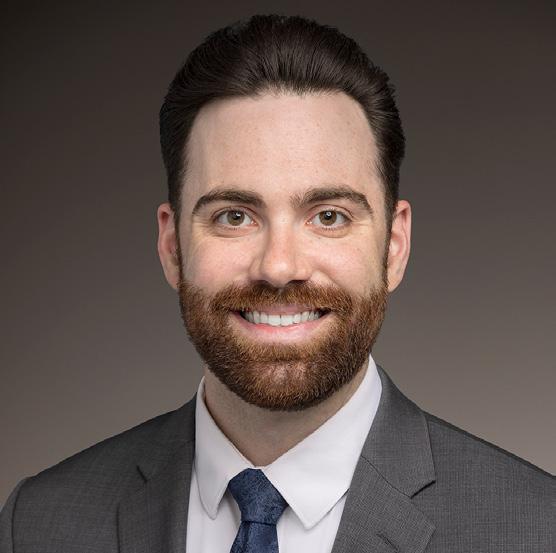
Jason Eldred represents businesses and business owners in a wide array of civil litigation matters. He has experience representing clients spanning multiple fields, including construction companies, real estate companies, and medical professionals. Prior to joining Wilke Fleury, Jason worked at a general practice firm handling both litigation and transactional matters. Jason’s practice primarily consists of business litigation, employment law advising and litigation, and bankruptcy.
1Take note that certain counties within California have different policies concerning paid sick leave. Make sure to consult your attorney to ensure your business is compliant with county requirements as well.
36 California Veterinarian | March–April 2024 LEGAL
free legal services
All CVMA member veterinarians receive up to one half-hour of telephone consultation per month with an attorney from Wilke Fleury LLP.
Veterinary practice-related areas of the law covered by the program include:
• Business tax issues
• Business/professional advice
• Cal/OSHA issues
• Contract issues
• Employment law
• Practice ownership and organizational structure
• Regulatory and administrative law
• Veterinary Medical Board/licensure issues
Areas not covered by the program:
• Criminal law
• Domestic relations
to claim this benefit:
1. Call Wilke Fleury LLP at
2. Enter extension number:
• 3336 for Steve Marmaduke
• 3314 for Jizell Lopez
3. Provide your CVMA member ID
To learn more about Wilke Fleury LLP, visit wilkefleury.com

ISC VETERINARY INSURANCE SERVICES COMPANY CA LIC #0F64180 CA LIC #0F64180 This benefit is sponsored by
916.441.2430
A Best Practices Guide to Preventing Employee Slips, Trips, and Falls in Your Veterinary Practice
By Scott Boggess, CSP, CIE, Director of Safety and Health, Preferred Employers Insurance
As you navigate the hustle and bustle of your veterinary practice, it's crucial to address a sometimes silent but significant threat to your daily operations: slips, trips, and falls. These seemingly innocuous incidents can have serious consequences, impacting not only the well-being of your dedicated staff but also the quality of care you provide to your furry patients. Here, we will shed light on practical strategies and best practices to create a safer working environment and prevent accidents and injuries.
Understand the Risks: Identifying Potential Hazards
The first step in preventing slips, trips, and falls is recognizing the areas and activities that pose a risk. Conduct a thorough audit of your clinic's premises, paying close attention to:
1. Floor Surfaces: Assess the condition of the floors, looking out for uneven surfaces, damaged tiles, or slippery spots. Consider investing in slipresistant mats in areas prone to spills, such as grooming and bathing stations.
2. Clutter: Keep hallways, treatment rooms, and workspaces free from unnecessary obstacles. Encourage staff to store equipment and supplies in designated areas, avoiding the temptation to leave items in walkways.
3. Footwear: Ensure that employees wear appropriate footwear with slip-resistant soles. Veterinary clinics often involve unpredictable situations, and having the right footwear can significantly reduce the risk of accidents.
Establish a Proactive Safety Culture: Education and Training
Prevention begins with awareness. Conduct regular training sessions to educate your team about the importance of maintaining
a safe work environment. Include the following elements in your slip and fall prevention training program:
1. Risk Awareness: Train employees to identify potential hazards and report them promptly. Encourage a culture of open communication, where team members feel empowered to share concerns about safety.
2. Proper Lifting Techniques: In a veterinary clinic, staff often handle animals of varying sizes. Provide training on animal restraint techniques to reduce the risk of strains and falls when working with excitable or anxious patients.
3. Emergency Procedures: Equip your team with the knowledge and skills to respond swiftly and effectively in case of a spill or accident. Having well-defined emergency procedures can minimize the impact of an incident and ensure a coordinated response.
Invest in Infrastructure: Upgrading for Safety
Enhancing the physical environment of your clinic is an investment in both the well-being of your team and the reputation of your practice. Consider the following upgrades:
1. Lighting: Adequate lighting is essential to identify potential hazards. Ensure that all areas of the clinic are well-lit, especially staircases, hallways, and outdoor pathways.
2. Handrails: Install sturdy handrails along staircases and ramps. This simple addition provides crucial support and stability, reducing the risk of falls, especially in areas where staff might be carrying equipment or animals.
3. Flooring Solutions: Invest in highquality, slip-resistant flooring in critical areas like treatment rooms, grooming stations, and reception areas. This can make a significant difference in preventing slips and falls, even in the face of unexpected spills.
Regular Maintenance: Sustaining a Safe Environment
Creating a safe working environment is an ongoing process. Implement a routine maintenance schedule to address potential hazards promptly:
1. Floor Inspections: Regularly inspect the condition of the floors and address any issues immediately. Promptly repair or replace damaged tiles and address any uneven surfaces.
2. Housekeeping Practices: Encourage a proactive approach to cleanliness. Implement a daily cleaning routine, especially in areas prone to spills or accidents. Quick responses to spills can prevent slips and falls.
3. Equipment Checks: Regularly inspect and maintain all equipment to ensure proper functionality. Malfunctioning equipment can contribute to accidents, so timely repairs are essential.
By adopting a holistic approach to safety, you can create a work environment that not only safeguards your team but also enhances the overall efficiency and reputation of our veterinary clinic. Remember, an investment in safety is an investment in the well-being of your staff, the quality of your patient care, and the long-term success of our practice.
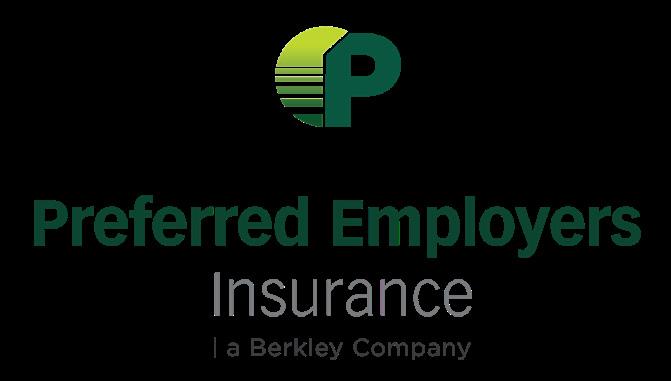
In partnership with
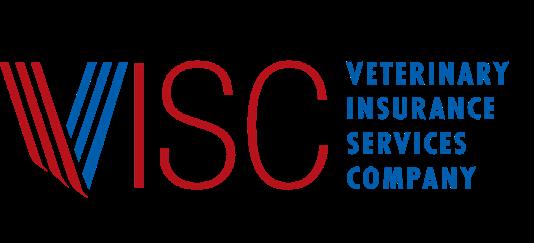
38 California Veterinarian | March–April 2024 CVMA INSURANCE SERVICES
SAFEGUARDING PAWS AND PEOPLE:
Something to About Wag
THE CVMA CONGRATULATES…
Drew Fleischman, DVM, DACVD, for becoming a diplomate of the American College of Veterinary Dermatology this past November. Dr. Fleischman—who currently works at Golden Gate Veterinary Specialists in San Francisco— was drawn to dermatology because he enjoys the case management that comes with long-term patients, with each case being a different puzzle that requires working closely with both the pet and the client's comfort level. Congratulations on this great accomplishment, Dr. Fleischman!
Grant Miller, DVM, the CVMA’s very own Director of Regulatory Affairs, for receiving the 2023 Alumni Achievement Award, the highest award bestowed by the UC Davis School of Veterinary Medicine (SVM)! Dr. Miller is recognized for his outstanding leadership in equine welfare, disaster preparedness and response, and support of the veterinary profession in California. His commitment to equine welfare has included spearheading volunteer organizations for equine wellbeing, national and international speaking invitations, and working in equine abuse cases. Dr. Miller has also played a pivotal role in developing and implementing disaster training and response plans, including helping found the California Veterinary Medical Reserve Corps. He has been dedicated to organized veterinary medicine and public policy since his time at UC Davis, where he served as the first-ever veterinary student intern for the CVMA. We’re very proud of you, Grant!
Sacramento Animal Hospital’s team, for expanding and opening the doors to Gold Canal Veterinary Urgent Care (GCVUC) in Rancho Cordova in early February. Drs. Diana Cortez and Erin True, the owners of GCVUC and Sacramento Animal Hospital, set out to establish a veterinary urgent care practice where “compassion meets urgency,” and to create a bridge between busy general practice and insanely busy emergency clinics. The team gives a special shout-out to Jay Porter and Meghan Sasaki for their efforts in getting the new practice up and running. Congratulations and best of luck on this new endeavor!
Kelley Zimmerman, BVetMed, DACVIM, for passing her veterinary medical oncology boards this year to become a diplomate of the American College of Veterinary Internal Medicine (Oncology). Following her residency at the University of Pennsylvania, Dr. Zimmerman joined the team at the Pet Emergency and Specialty Center of Marin. She is passionate about the exciting, constantly evolving field of oncology, as well as the client-patient relationships that she is able to develop. Well deserved, Dr. Zimmerman!
Let’s Celebrate Your Achievements!
The CVMA likes to spotlight the many accomplishments of our members and their practices, whether a professional development or a personal milestone. Don’t be shy! Please send in your good news and a photo to Taryn DeOilers, the CVMA’s Director of Communications, at tdeoilers@cvma.net to be considered.
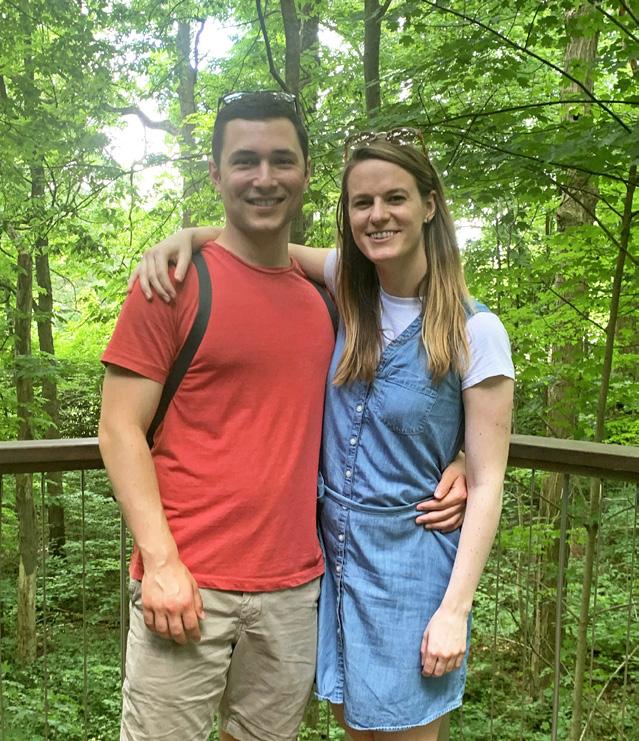
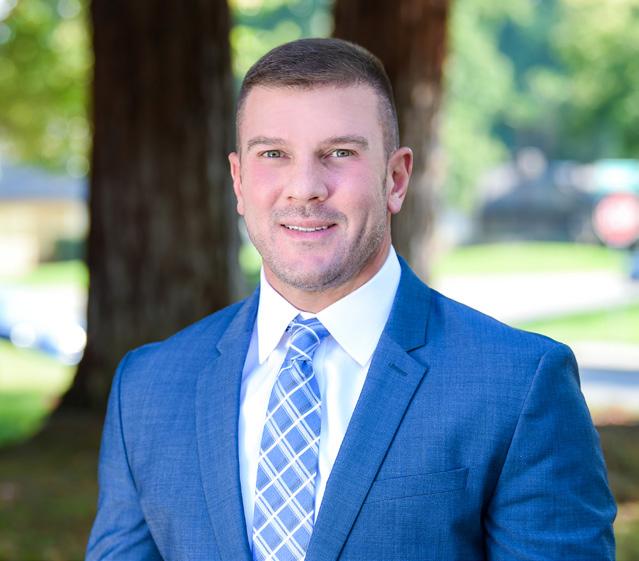

39 cvma.net/publications
SOMETHING TO WAG ABOUT
Fiancées Drew Fleischman, DVM, DACVD and Kelley Zimmerman, BVetMed, DACVIM
Grant Miller, DVM
Meghan Sasaki and Jay Porter




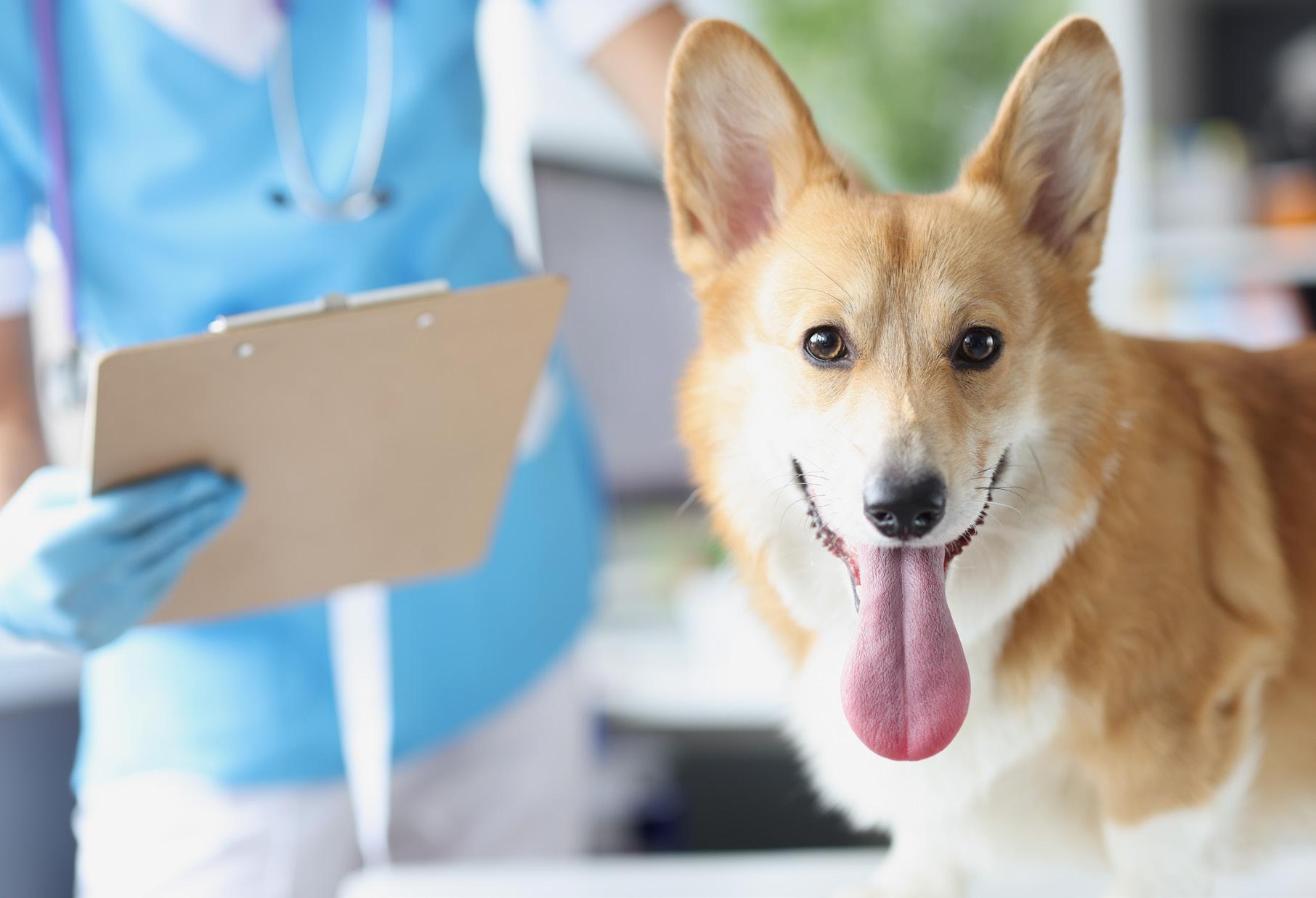
40 California Veterinarian | March–April 2024 YEAR-END TAX PLANNING review and answer questions ANALYZE business and personal financials FUTURE PLANNING tax payments, budgeting, and avoiding tax pitfalls Perform your business wellness check with GATTO MCFERSON Preventive health measures include: SCHEDULING A WELLNESS CHECK IS GOOD PRACTICE We offer tax preparation of personal and business tax returns in all 50 states. SCHEDULE A CALL TODAY! C M Y CM MY CY CMY K gatto-half-080923.pdf 1 8/9/23 7:18 PM INJECTION SOLUTION 0.5 mg/mL, 10 mL or 50 mL BUPRENORPHINE 100% manufactured following FDA enforced regulations Tested for potency and sterility Less expensive per mg than other products on the market Ready to ship with 2 days in transit FDA Registered Facility Order today! 888-508-5032 Buprenorphine Injection is on the do not compound list for office use under GFI #256. Stay DEA & FDA compliant! Order compounded Bup from a 503B Facility like Epicur. Mention CVMA member benefit to receive 10% off all office orders!
VMeet the Student Poster Presenters at the 2024 PacVet in San Francisco
eterinary students from the UC Davis School of Veterinary Medicine and the Western University of Health Sciences College of Veterinary Medicine will be presenting their research at the Vet Expo of the Pacific Veterinary Conference in San Francisco. The student presenters will be available to take questions and further delve into their theses during lunch breaks on Friday, July 12 and Saturday, July 13 and during the late-afternoon breaks from 4:00–4:30 PM.
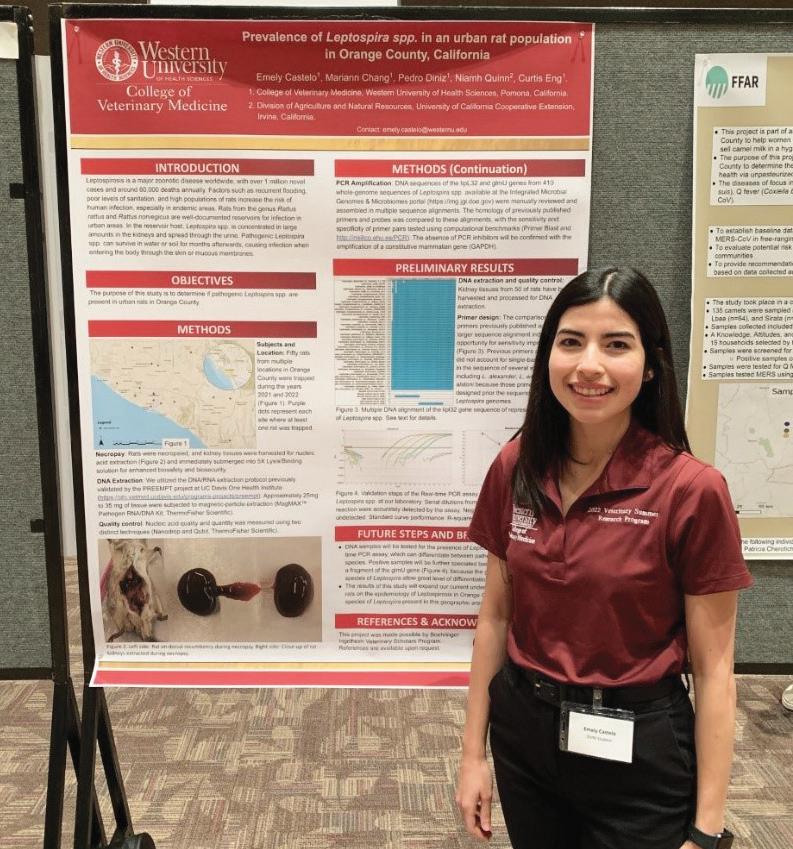
UC DAVIS STUDENT POSTER PRESENTERS AND TOPICS
Trang Le, Class of 2026
• Evaluation of the Optic Nerve Head and Peripapillary Retinal Nerve Fiber Layer Using Optical Coherence Tomography in Normal Dogs
Juliann Hallum, Class of 2026
• Determining the Role of SOX9 in Avian Beak Development and Morphogenesis
Rachel Formaker, Class of 2026
• Combined MSC-Antiviral Treatment for Systemic Inflammation and Lymphoid Tissue Regeneration in Cats with FIP
WESTERNU STUDENT POSTER PRESENTERS AND TOPICS
Anaid Carlo-Allende, Class of 2026
• RNA-Interference: Role of Ig-Like Receptor B in Chicken Macrophage Response to AIV and Salmonella Typhimurium
Maya Ballout, Class of 2026
• Changes in the Blood Biochemical Parameters in Cattle Experimentally Infected by Ostertagia Ostertagi
Seza Boyajian, Class of 2026
• Comparing the 'Gold Standard' in Post-Operative Pain Assessment and Pressure Algometry with the PainTrace©
Grace Kinyon, Class of 2026
• Anticoagulant Rodenticide Prevalence in Southern California Turkey Vultures and Swainson’s Hawks: Pilot Study
PACVET ALUMNI RECEPTIONS
Attention all UC Davis and WesternU alumni! You are invited to join your peers and college’s current students during evening receptions. Catch up with former classmates, make new friends, dine on hors d’oeuvres, and enjoy a no-host bar.
41 cvma.net/publications STUDENT NEWS
Free CVMA Mentor Moments Session for Veterinary Students and New Grads
Join us for our free online Mentor Moments presentations led by CVMA member veterinarians eager to share their real-world experiences and advice. These presentations are interactive and include time for you to ask your burning questions. Best of all, these presentations are FREE!
Attendees are entered into a raffle for a $50 Amazon gift card!
To register, click on Student Events under the Resources tab at cvma.net or scan the QR code.

A Day in the Life of a Food Animal Practitioner
March 28, 2024
12:00–1:00 PM
CVMA President Dr. Michael Karle will share his unique perspective on the life of a rural food animal practitioner. In this interactive discussion, you will gain a deeper understanding of the challenges, rewards, and opportunities in food animal and mixed animal practice. Bring your questions and concerns to the table as we facilitate an open dialogue!
Topics include:
• Lifestyle and compensation
• Business ownership opportunities
• Food animal medicine
• Mixed animal practice
Speaker
Michael Karle, DVM Dr. Michael Karle graduated from the UC Davis School of Veterinary Medicine following his undergraduate work in the university's Animal Science Department. In 2001, he moved to Orland and joined Mid-Valley Veterinary Hospital, eventually buying into the mixed animal practice a few years later. In 2013, he purchased the practice as the sole owner.

The Ins and Outs of Pet Insurance
April 17, 2024
6:00–7:00 PM
In this interactive discussion, we will first discuss exactly what pet insurance is and what it is not, then turn to the pros and cons of insurance policies and programs, and finally the intricacies of recommending insurance to your clients.
Topics include:
1. What is pet insurance?
2. Why is it important to my clients?
3. What are the important features of pet insurance?
4. How do I recommend insurance to my clients?
5. Pet insurance do's and don'ts
Speaker
Peter Bowie, DVM
Dr. Karle is heavily involved with organized veterinary medicine and currently serves as the President of the CVMA. He also serves as the CVMA’s Agriculture Committee Chair, and is a member of the CVMA Legislative Committee. He is also the American Association of Bovine Practitioners’ representative to the American Veterinary Medical Association’s Legislative Advisory Committee.
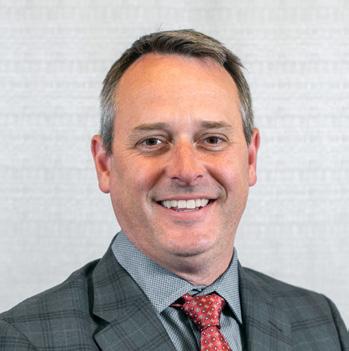
Dr. Peter Bowie graduated from the University of Minnesota College of Veterinary Medicine and continued his studies at the University of Pennsylvania with an internship in Emergency and Specialty Medicine and Surgery. Between 2000 and 2022, Dr. Bowie practiced emergency and critical care medicine and served as the medical director at Pet Emergency and Specialty Center of Marin. A strong proponent of organized veterinary medicine, Dr. Bowie currently serves on the CVMA’s Board of Governors, the American Veterinary Medical Association’s PAC Board, and Veterinary Insurance Services Company’s Board of Directors. He has now started his consulting firm, TowardHealth Consulting, which works with private practitioners, corporate management, and startups in the veterinary space.
42 California Veterinarian | March–April 2024 STUDENT NEWS
UC DAVIS NEWS UC Davis to Host 75th Anniversary Gala
The UC Davis School of Veterinary Medicine will celebrate its 75th anniversary with a gala on June 29, 2024 at the Sacramento Memorial Auditorium. Join Dean Mark Stetter and many faculty members for an unforgettable evening celebrating three-quarters of a century of providing exceptional animal care and preparing top-tier veterinary medicine students for careers and service. Enjoy a cocktail hour, gourmet meal, live auction, unrivaled entertainment, inspiring stories, and a boot-kickin’ after-party.
The 75th Anniversary Gala is also your opportunity to partner with the UC Davis School of Veterinary Medicine and proudly showcase your commitment to advancing
WESTERN U NEWS
the health of animals, people, and the environment. Sponsorship of the event is a way for you to reach passionate animal lovers and veterinary professionals. Funds raised from the gala through sponsorships and donations will support funding for DVM student scholarships.
As the nation’s top-ranked veterinary school, UC Davis is shaping the field of animal health, developing dynamic veterinary treatments, and making key discoveries related to animal, human, and environmental health. Educating the next generation of veterinary leaders is at the heart of the school’s mission. Your partnership and investment in DVM students make this possible.
WesternU Receives Nearly $900K Federal Grant to Help Diversify Biomedical Research Workforces
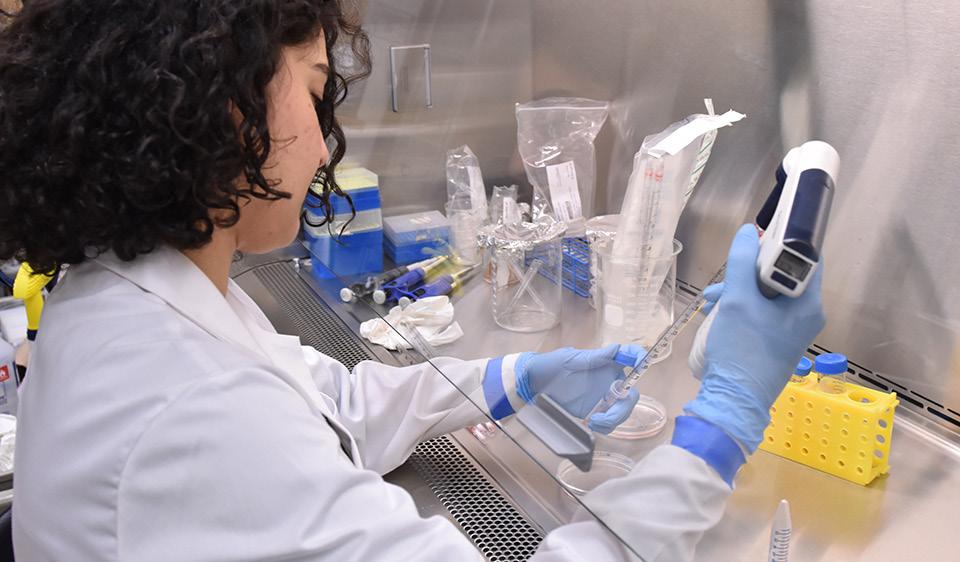
Researchers from WesternU’s College of Veterinary Medicine and the College of Osteopathic Medicine of the Pacific-Pomona (COMP) teamed up to receive a multi-year grant from the National Institutes of Health (NIH) designed to strengthen and diversify the biomedical research workforce.
The institutional short-term training grant of about $176,000 per year for five years marks the successful conclusion of a long process. Two years ago, WesternU CVM’s Associate Dean for Research Dominique Griffon, DVM, MS, Ph.D., DECVS, DACVS,
approached Dr. Ed Wagner, Ph.D., a colleague at WesternU’s COMP, with a unique idea for a summer training program to draw students from underrepresented groups into the biomedical research field.
Two grant proposal submissions followed, both exceeding 200 pages in length, before the funding was finally provided. But Dr. Griffon said the long journey to success was well worth it.
The project, Diverse & Equitable Student Inclusion in Research for Future Veterinarians (DESIRe-Vet), will provide a diverse group of veterinary students with rare and invaluable exposure to biomedical research programs and is designed to inspire them to pursue careers in the field. Training will consist primarily of hands-on experience in high-priority areas of biomedical research but will also include formal and informal peer mentoring activities, as well as group training that focuses on responsible conduct
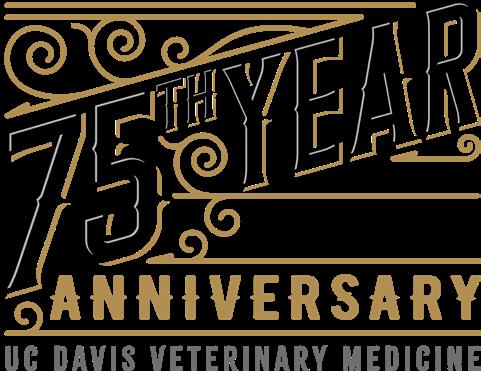
For ticket information and to secure your sponsorship, contact the school’s Advancement Team at vmdodevelopment@ucdavis.edu or 530.752.7024. For more information, visitvetmed.ucdavis.edu/75th-anniversarygala or scan the QR code below.

of research, scientific rigor, reproducibility, career opportunities in biomedical research, dissemination of results, and advances in biomedical research. The program will provide a well-rounded experience for the students involved, offering an immersive learning approach that will not only enhance their technical abilities but also foster critical thinking, problem-solving, and collaboration skills.
Dr. Griffon emphasized that the program distinguishes itself by its targeted applicants, distributed research environment focused on science teams, hybrid delivery of didactic content, and multimodal mentoring.
“The concept behind DESIRe-Vet stems from the current imbalance between societal needs and current career paths selected by new veterinary graduates,” Dr. Griffon said. “The long-term goal is to increase the representation of underrepresented minorities and veterinarians in the field of biomedical research. The program will influence their career choices through active participation in research and mentoring based on social cognitive career theory. The program ultimately seeks to empower veterinary students by immersing them in a comprehensive research experience.”
43 cvma.net/publications UNIVERSITY NEWS
 Ellie Wattles, DVM, President,
Ellie Wattles, DVM, President,
Broker
Beka Herrera, Vice President, Broker
TRUSTED VETERINARY BROKERS- Serving CA Veterinarians for 30+ Years. With our proven track record,
VENTURA COUNTY:
Located in a thriving valley community. Solo DVM practice has limited competition for a growing population. Real estate includes a separate office & private parking. Friendly clients. Limited DVM hours (PX closes at 5 PM) & no weekend or emergency services provided. Spanish speaker ideal.
2023 GROSS: ~$886,000
PRACTICE PRICE: $610,000
REAL ESTATE PRICE: $635,000
SAN FRANCISCO BAY AREA:
Urban/Suburban mix with easy access to San Francisco, Napa Valley, Sonoma County & Sacramento. Conveniently, centrally located, leased facility of ~ 2,750 sq. ft. Well-equipped practice, with excellent client base, most being homeowners. Income produced with one DVM per day.
2023 GROSS: ~$1 Million
PRACTICE PRICE: $935,000
YOSEMITE COUNTRY:
Situated in the foothills of the Sierra Nevada Mountains, near Yosemite National Park. Small animal hospital with a favorable lease rate in a free-standing ~1,680 sq ft. facility. The facility includes two exam rooms, 20 cages & IDEXX lab equipment. 2022 gross produced with solo DVM working PT, ~$497,973
PRACTICE PRICE ONLY: $330,000
NEW! SONOMA COUNTY:
Less than 1 hour to Oakland & SF. Solo DVM PX has been experiencing health issues. 2023 Gross ~$565,000 produced with limited hours & surgeries. Wellmaintained, free-standing hospital. ~2,300 sq. ft. hospital. Excellent location on major, heavily trafficked road.
PRACTICE PRICE ONLY: $380,000
REAL ESTATE PRICE: $810,000
we can help you reach your goals.
SIERRA FOOTHILLS REGION:
Only an hour to Sequoia National Park. Well-maintained, exceptional, ~7,100 sq. ft. free-standing facility includes three exam rooms, boarding wings, & much more. Well-equipped, busy solo DVM & quality staff. Both practice & real estate are priced below the appraised value.
2023 PROJ GROSS: ~$1,300,000
PRACTICE PRICE: $895,000
REAL ESTATE AVAILABLE FOR SALE
SANTA CLARA COUNTY:
A thriving community that boasts a great quality of life to its residents. Wellestablished PX is ready to welcome a new owner operator. 2,500+ sf building which sits on a quarter acre lot. Room for expansion within the footprint of the building.
2023 Gross ~ $849,000.
PRACTICE PRICE ONLY: $699,000
REAL ESTATE FOR SALE. PRICED TO SELL!
NORTHERN CA:
A quaint community located 30 minutes north of Chico, two hours from Davis. Well-maintained 3,000 sq. ft. freestanding facility built in 2005. Exceptional profitability & growth potential. Owner available post-sale.
2023 PROJ GROSS: ~$1,500,00
PRACTICE PRICE: ONLY $999,000
REAL ESTATE PRICE ONLY: $625,000
NEW! SAN DIEGO COUNTY:
Rare high-grossing, multi DVM, turn-key practice. ~4,000+ sq. ft. facility with very favorable lease rate. Hospital boasts state-of-the-art equipment & highly trained staff. Seller is available to remain long-term. If you are a qualified buyer, why lose this one to the corporates?
2023 GROSS: ~$3.4+ Million
CALL FOR DETAILS
SAN DIEGO, EAST COUNTY:
Within easy reach of nearby cities & attractions like great restaurants, Padre baseball, and SeaWorld. Wellestablished practice located in an active, popular shopping center. Practice needs a new energetic DVM. ~1,400 sq. ft. leased facility with 2 exam rooms, digital X-ray & new ultrasound.
2023 PROJ GROSS: ~$650,000
PRACTICE PRICE ONLY: $400,000
MENDOCINO COUNTY, COASTAL:
Located in the scenic harbor town of Fort Bragg, just 3 hours North of SF. The superb quality of life offers exciting recreation. The practice draws from a large area with minimal competition & big demand for DVM services. Free-standing facility ~2,000 sq. ft. Currently, PX is essentially closed.
TOTAL PRICE FOR BOTH PRACTICE & REAL ESTATE ONLY: $350,000
SOUTHERN RIVERSIDE COUNTY: Multi-DVM, profitable practice about 1 ½ hours from LA & San Diego. Freestanding, well-maintained AAHAaccredited hospital consisting of 2,450 sq. ft. with three exam rooms. It is wellequipped & includes an outstanding 15-member staff. Room for growth.
2023 GROSS: ~$1,820,000
CALL FOR PRICING DETAILS
GREATER EAST BAY:
Thriving diverse suburban community with major development. Only open 4.5 days per week. Emergencies are referred elsewhere & surgeries are extremely limited. Additional income source accessible for the right buyer.
2023 GROSS: ~$730,000
PRACTICE PRICE: $535,000
REAL ESTATE PRICE: $530,000
Cell: (805) 794-1073 or (805) 551-5556 | Office: (805) 524-3195
Email: pacproinc@aol.com | Site: www.pacificproinc.com
Address: 545 Sespe Ave., Fillmore, CA 93015 | DRE 01140877
44 California Veterinarian | March–April 2024
POSITIONS OFFERED
Northern California
Veterinarians
Busy, family-owned 5-doctor small animal general practice in Antioch, CA needs an additional F/T or P/T doctor. Objective: Support Staff: bright, alert, and responsive, can be feisty if asked to do too many nail trims. Technology: DR, ultrasound, dental radiography, in-house lab machines. Facility: Recently expanded and remodeled, no leaks in roof. Clients: Mostly friendly, can hiss occasionally, usually won’t bite. Doctors: Team atmosphere, work together for success! ASSESSMENT: Great place to work. PLAN: Offer the following: Base salary of $150K-180K, depending on experience, expected earnings higher on Pro-Sal; Organized mentoring (if desired) by veterinarians who have a vested interested in your success; 4 or 5-day work week, benefits; Possible reimbursement for exiting a corporate contract; Verbal pats on the back, when earned. Website: easthillsvethospital.com. Email: dannybrownvet@gmail.com.
Reed Animal Hospital (Saratoga) is seeking an enthusiastic associate veterinarian to join our team of doctors. Reed Animal Hospital (Saratoga) is a full-service animal hospital whose mission is to provide the highest standard of quality and compassion in veterinary care for our clients and their pets. We are independently owned noncorporate practice in an affluent area. To provide excellent care we are well equipped with in house labs, ultrasound, and both dental and digital radiograph machines. We also provide a fully equipped surgery suite. Our well trained and compassionate staff are here to support you in providing the very best options for your clients and patients. We have loyal client base and a constant influx of new clients. We are open 7 days a week. Appointments start at 9am to 7pm Monday through Friday and 9am to 5pm Saturday and Sunday. No after hour emergencies. Most veterinarians work a 3-day week. We offer competitive compensation enabling an experienced veterinarian to make between $175,000 to $300,000 per year in salary with additional production bonuses paid bimonthly in addition, a comprehensive benefit package, including medical (dependents included), dental and paid vacation/sick days, 401K, $10,000 Spring Bonus, Subsidy for the first six months for housing, generous employee pet discounts, continuing education allowance, reimbursement for membership dues, license fees, and uniforms are available. New graduates are encouraged to apply. What we are looking for: Commitment to practicing excellent patient care. Understand and prioritize the importance of the client experience. Ability and confidence to handle walk-in urgent cases. Have teamwork mentality. Ability to maintain accurate medical records. Strong communication, interpersonal, problem-solving and organizational skills. Email karenflewelling@gmail.com.
The Medical Center for Birds is seeking a board-certified associate, experienced candidate, or internship/residency candidate to join our current team. Our practice is an avian-exclusive practice, with no other species groups included in our patient database. The core
values of our practice include continual delivery of excellent avian medical and surgical care to birds and for their stewards, publication and contribution to the advancement of our specialty, teaching, and most importantly, enjoying what we do. Who we all are, and the quality of how we work together is a defining characteristic of our bird medical world here, and it is important for all candidates to have the right feel and fit in this unique practice world of ours. We are proud of our work environment and look forward to bringing in another family member. The Medical Center for Birds has an active ABVP (Avian practice) approved residency program, which is typically preceded by a one-year internship, as well as an approved ECZM (Avian) residency program. The Medical Center for Birds is housed in a newly completed, state-of-the art design 4,100 Sq ft facility. We are well-equipped; consistent with the requisites of a mature avianfocused practice, including advanced anesthesia monitoring and patient support systems, operating microscopy and microsurgical instrumentation, head mounted surgical magnification, radiosurgery, two rigid video endosurgery systems, advanced image display and capture technology, beak repair acrylics for orthotic and synthetic prosthetic applications, digital projection radiographic imaging, fluoroscopy, ultrasound, and high-definition CT imaging systems. Email avnvet@aol.com.
Davies Animal Medical Hospital - Yuba City, CA. We are an established (30+ years), busy, privately owned, family-oriented, small animal practice. We are a general practice but handle a lot of urgent and emergency cases, internal medicine, surgical cases, and more. We are also well-known and loved by our community and are consistently named as the city's "Best Veterinary Practice"! We are seeking motivated, experienced (2+ years' experience) fulltime veterinarians to join our 8-doctor team and help us serve our beloved community. Located in Yuba City, CA it is an easy commute from Sacramento or Chico. The area is perfect for an active lifestyle! Davies Animal Hospital is just a short drive from Tahoe, Napa wine country, and the state capital, which hosts lots of local events! We have an incredible team of over 50 staff members with a high staffto-doctor ratio. Our staff works together collaboratively, cohesively, and efficiently and the atmosphere is always fun. We work hard to keep the morale high, and it shows in our employee retention. We are well equipped with a full Idexx Laboratory, computerized records with home access, digital radiography, and access specialist support for those complicated cases. The ideal candidate would be a team player, who strives to perform high-quality medicine, with a focus on creating a warm, family experience with clients. We aim to provide our team with an optimal work/life balance and flexible work schedules. We even offer medical transcription services (scribes) for our veterinarians so they can focus on the medicine and not on the paperwork! We are offering a highly competitive salary with a production bonus (potential earnings of $160 - 300k!), and benefits including medical, dental, vision, 401k, CE allowance, Licensing/ Dues/Uniform reimbursement, medical transcription services (scribes), and even a DoorDash benefit! Email Jannaperezdvm@gmail.com.
45 cvma.net/publications CLASSIFIED ADVERTISING
Associate DVM for Natomas Veterinary Hospital in Sacramento. Natomas Veterinary Hospital is seeking a full time Veterinary Associate to add to our team. Our ideal candidate is a team player who strives to perform high-quality medicine with a focus on creating a warm, family experience with clients. We are a privately owned 3-doctor small animal practice that has been part of the community for the past 13 years. Natomas Veterinary Hospital is highly valued for its quality and compassionate care. We are well equipped with a full IDEXX laboratory, cloud based electronic records, digital radiographs (conventional and dental), and ultrasound. We work closely with local specialists to practice a gold standard of veterinary medicine. Here are a few other areas that stands us apart from other practices: High staff to doctor ratio with highly trained and leveraged support staff. Scribe to complete your records. Strong team culture, and 4-day work week. Realistic opportunity to make $200,000+ after production. We are located less than 15 minutes away from downtown Sacramento (home of the Kings!) and the Sacramento International Airport. The area is a perfect fit for an active lifestyle — minutes away from the state capital with tons of local events and a bustling art & culinary community, 2 hours away from Tahoe and the beautiful California outdoors, and 1 hour from Napa wine country. Other benefits include paid time off, medical/dental/vision, 401k, CE allowance, licensing & professional membership reimbursement, and uniform reimbursement. Experienced Veterinarian: $155,000/year + production, no negative accrual. Email jannaperezdvm@gmail.com.
Central California
Veterinarians
Critters Without Litters, Kern County’s premiere nonprofit spay/ neuter clinic, is seeking a capable and compassionate veterinarian to join our team. We offer: an extremely competitive salary and benefits, including medical, dental, and vision insurance; paid time off; a 403(b) retirement plan; a strong, experienced medical support team; top of the line surgical equipment and supplies; a Monday-Thursday surgical schedule (approximately 7 a.m. to 4 p.m.) with no nights or weekends; and several paid holidays.
The clinic closes twice yearly around holidays to allow everyone the opportunity to rest and recharge. The organization also offers a generous CE allowance, license and dues, is PSLF-approved, and a professional, upbeat environment. FT or PT positions available. Located in California’s southern Central Valley, the clinic’s location in Bakersfield offers easy access to the beach, mountains, desert, or Los Angeles for your weekend and vacation fun. Additionally, you will be joining a team that has communitywide support and respect for the work we have done, with over 116,000 spay/neuter surgeries performed and a thriving vaccine clinic, seeing over 17,000 pets annually. Primary duties include spay/neuter surgery for pets and feral/free-roaming cats through our TNVR program, along with pre- and post-surgery exams, and collaborating with our veterinary technicians/assistants. Sound boring? We can assure you that every day is different and after eleven-plus years, our staff members haven’t gotten bored yet. New graduates are welcome to apply. Starting salary of $140K for new full-time grads/veterinarians with limited spay/neuter experience, with additional salary consideration for doctors with previous experience and/or spay/neuter surgical skills. Email critterswolitters@gmail.com.
HOSPITALS—SALES/LEASE/BUY
La Boit Mobile Veterinary Clinic; Ford E-450 Series 2006 with 18,000 miles. Kennels, surgical suite, wet table with water, lighting; water heater, refrigerator; AC/Heating in cab and unit. Asking price $45,000. Email gabrielflor51@gmail.com.
This is the vet from Galloway Cat Clinic in Torrance. We are a 13 yearold cat only clinic, looking for a new owner, partner, or an associate who can carry on the clinic for our clients. We have a supreme location, excellent clients, huge parking lot, and last unit of the 1 story building. We humbly decline all Corp offers. Please text to 405.880.2717 or email to vetson@daum.net.
46 California Veterinarian | March–April 2024 CLASSIFIED ADVERTISING
Epicur Pharma .…......................................................... 40 Gatto McFerson …........................................................ 40 Omni Practice Group …................................................ 48 Pacific Professionals Inc. .….........................................44 Preferred Employers Insurance .…..............................47 Simmons Inc. .............................................................. 35 Veterinary Insurance Services Company ...................... 2 ADVERTISING INDEX
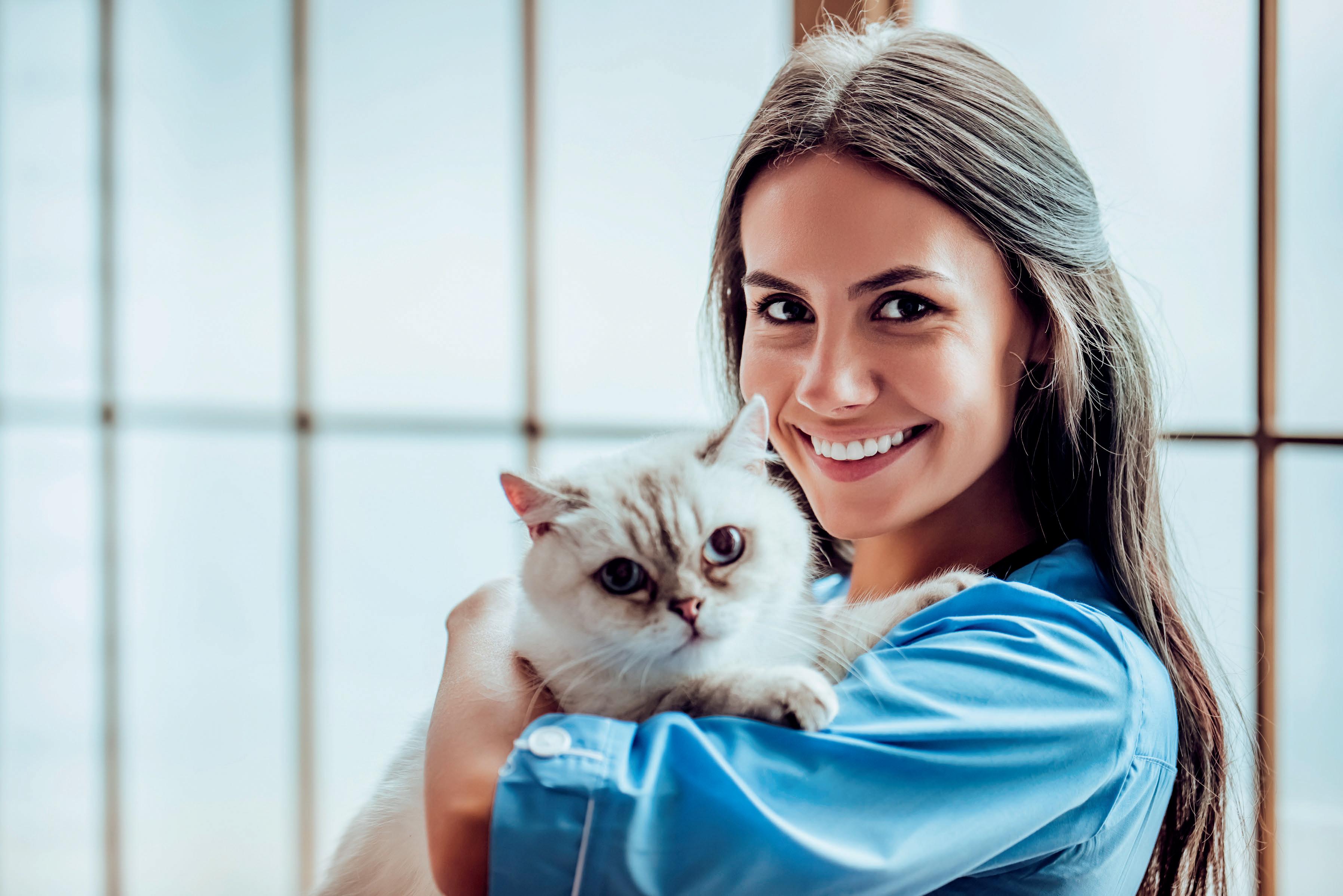



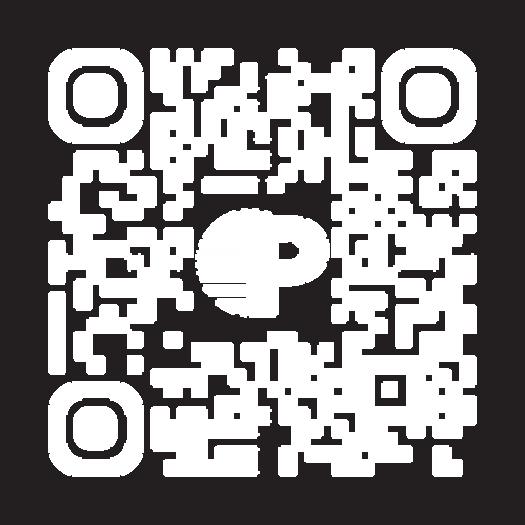
C A l i c e n s e # 0 F 6 4 1 8 0 S c a n t o g e t s t a r t e d a n d r e q u e s t a q u o t e a t b i t l y / v i s c v e t s f r o m y o u r t r u s t e d a d v i s e r GET STARTED TODAY Veterinary Expertise MPN Plus (Our Medical Smartphone App) *FREE* Workplace Safety & Health Training Videos Coverage extends to volunteers, interns, and externs Exclusive Medical Network in Case of Workplace Injury Receive Instant Access to a Doctor via Video Call S A V E M O N E Y W I T H A N E W , L O W E R A S S O C I A T I O N G R O U P R A T E ON WORKERS COMPENSATION INSURANCE EXCLUSIVE CVMA PROGRAM BENEFITS INCLUDED WITH YOUR POLICY WEN * LOWER* R *ETA
Thinking about an Exit Plan? We can help.
We've sold over 300 practices in the past 25 years.
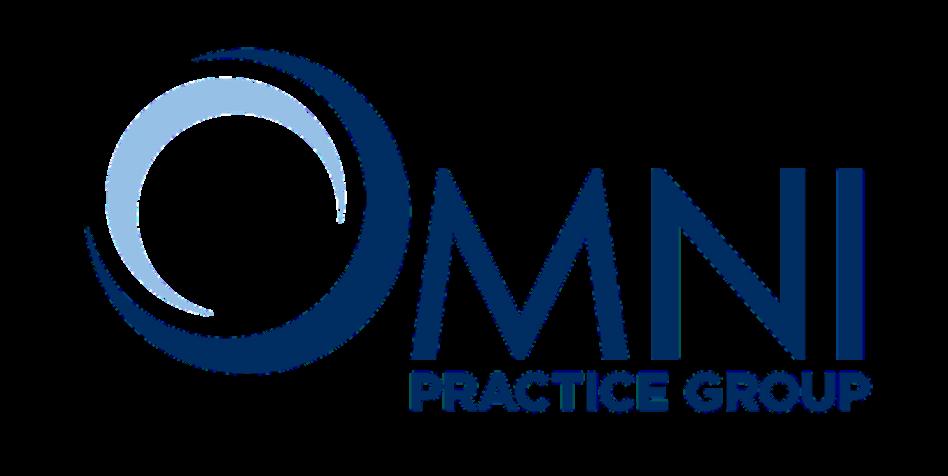

What Veterinarians are saying about Omni:
“A lot of emotion goes into selling your veterinary practice. It’s your heart; it’s your baby. OMNI kept that in mind when trying to find the right buyer for us...and was able to get us a higher price for our practice than we would have been able to get on our own.”
-Don Aupperlee, DVM
Sign up for our newsletter today!
omnipg-vet.com/newsletter
805-452-6588
kim@omnipg-vet.com
omnipg-vet.com
Kim Ford License #2205339












 Dan Baxter Executive Director
Dan Baxter Executive Director





































 Additional speakers are being added. For the most up-to-date list of speakers, sessions, and schedule, visit the CE Program tab at PacVet.net. Speakers are subject to change.
Additional speakers are being added. For the most up-to-date list of speakers, sessions, and schedule, visit the CE Program tab at PacVet.net. Speakers are subject to change.








































































 Ellie Wattles, DVM, President,
Ellie Wattles, DVM, President,






